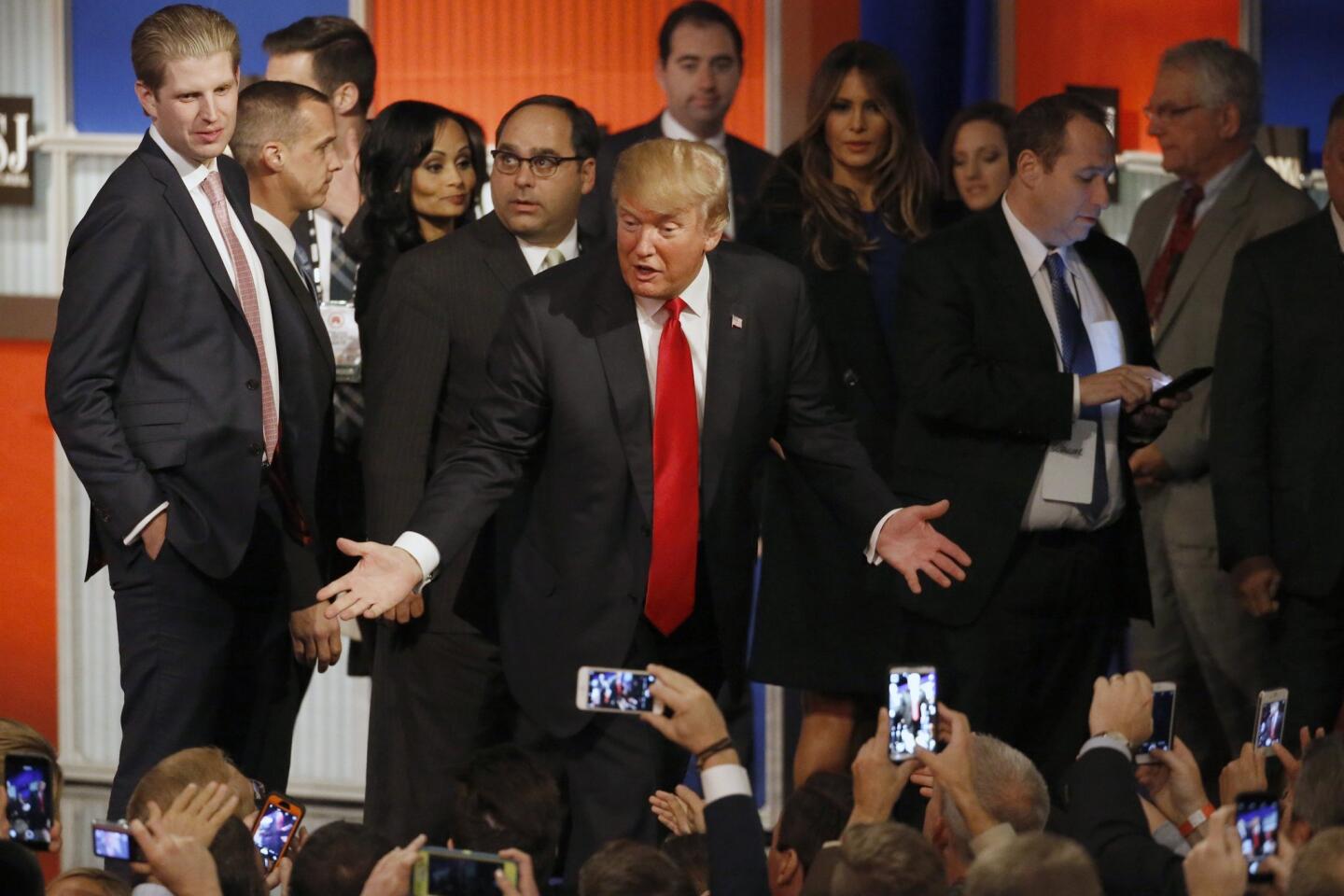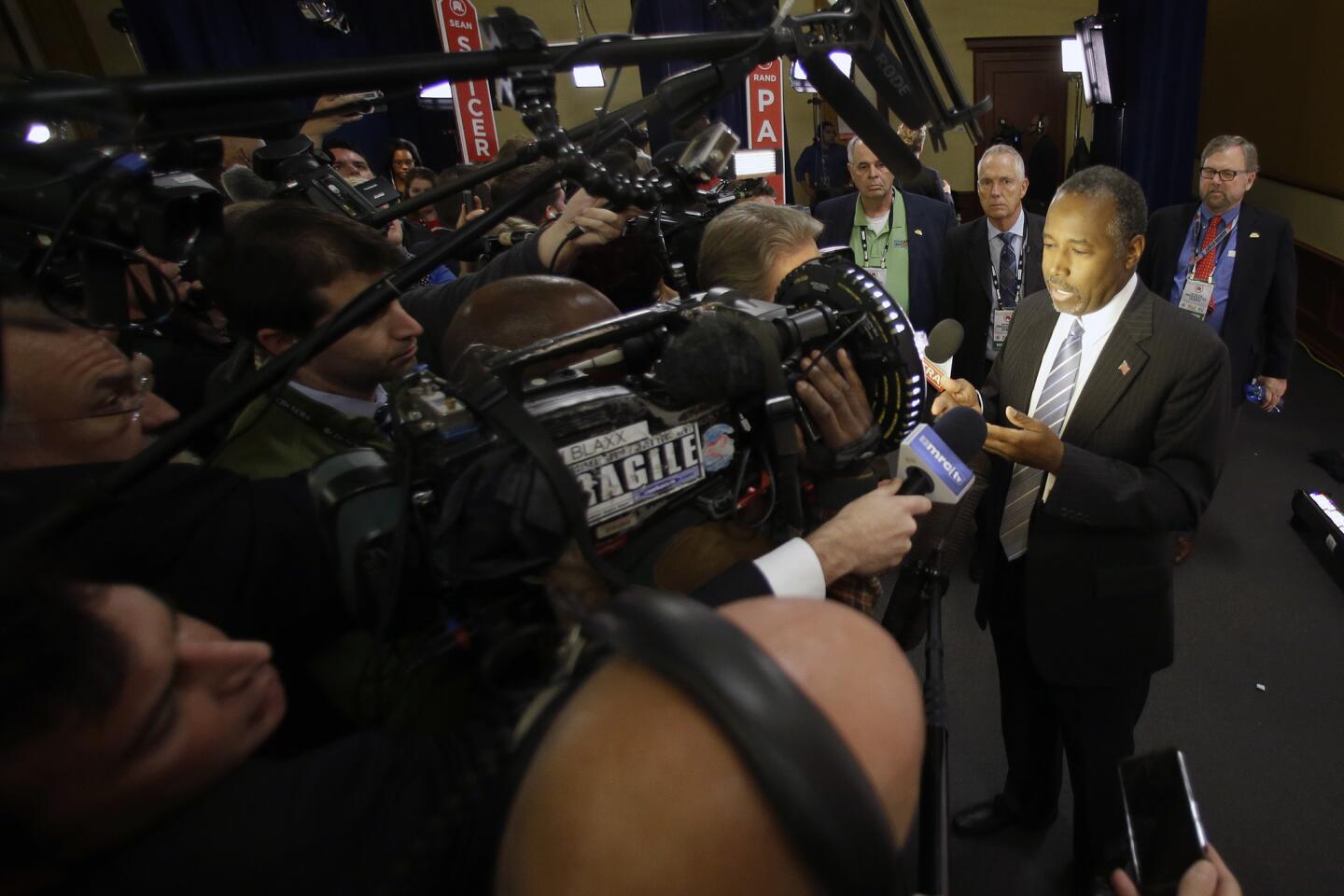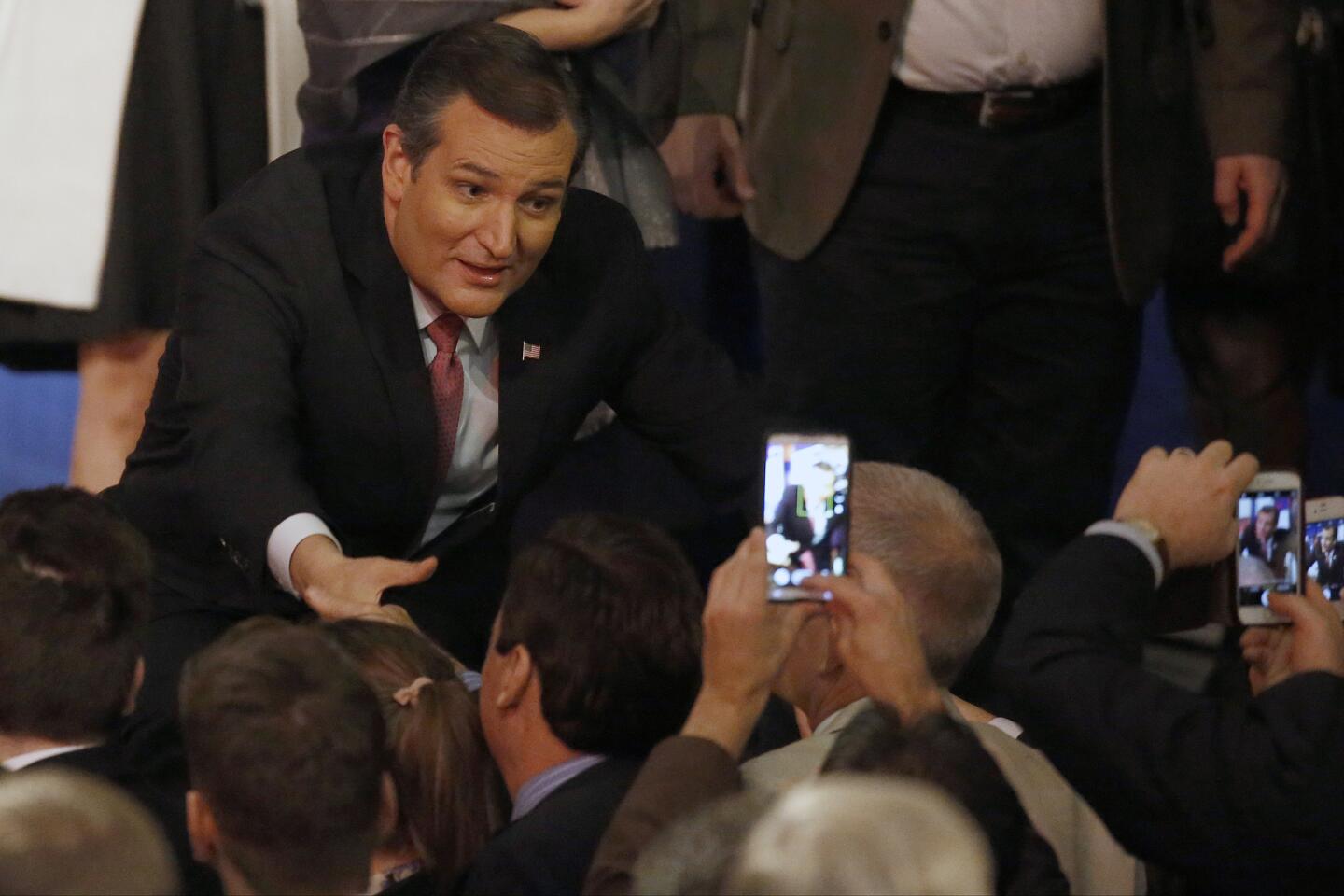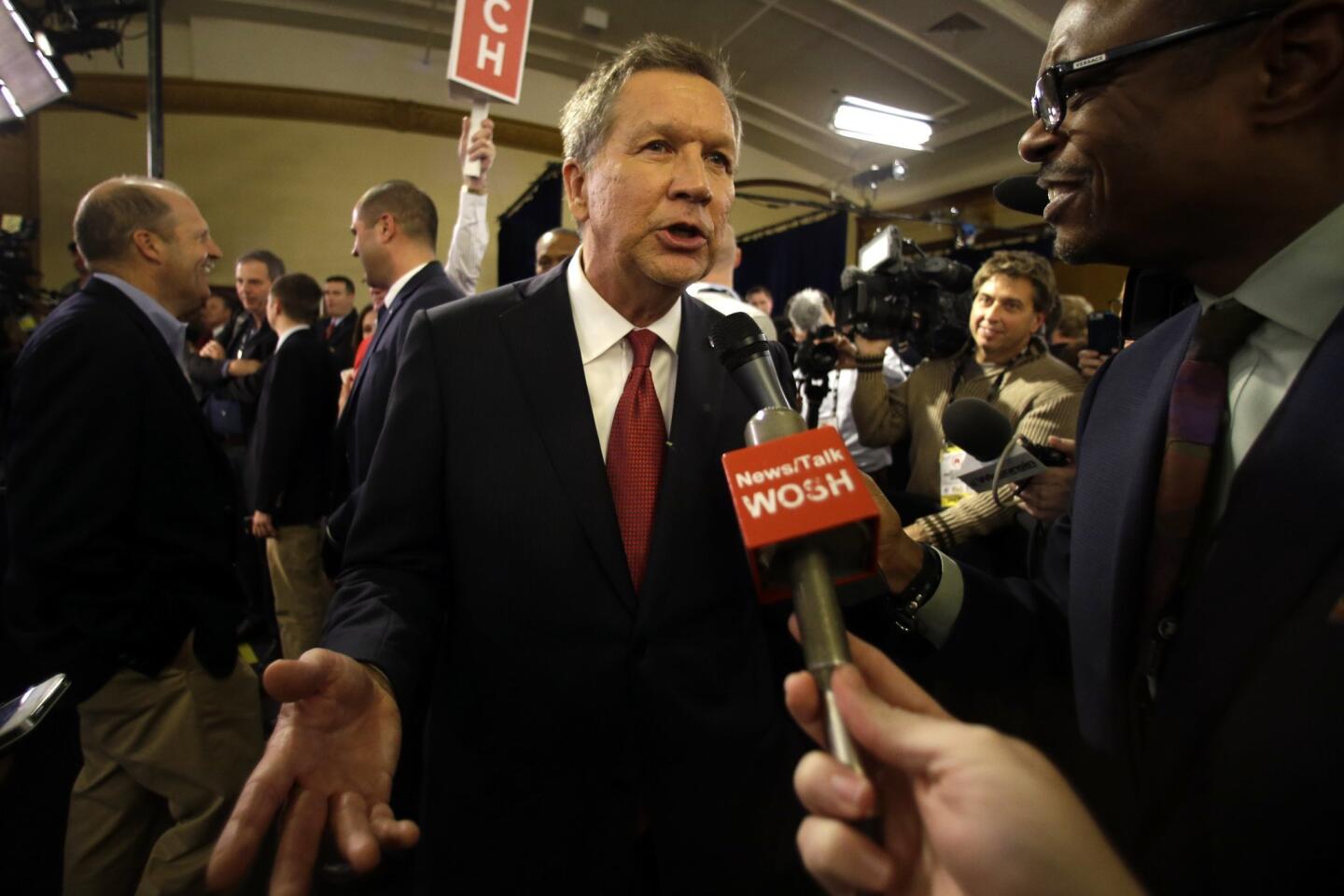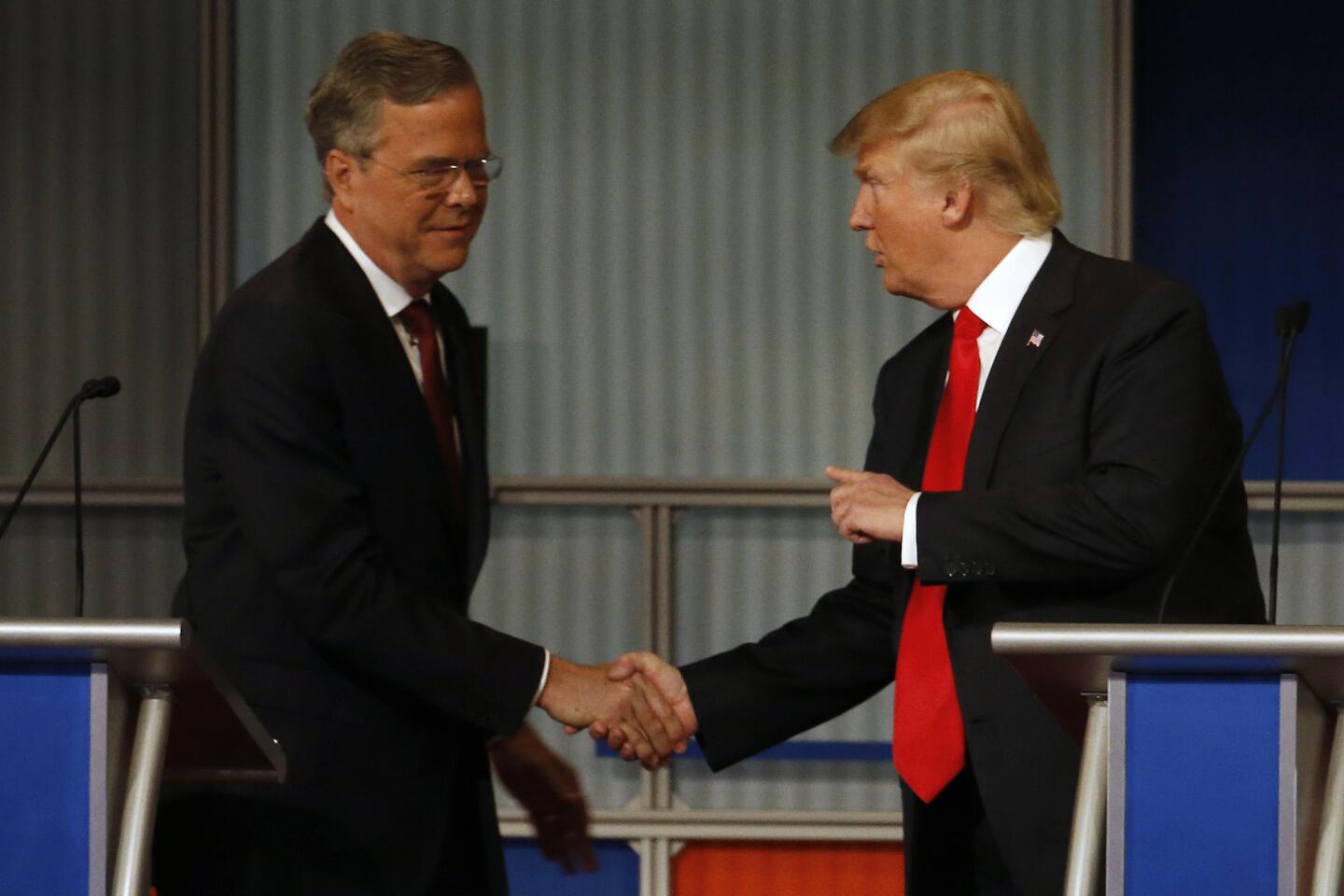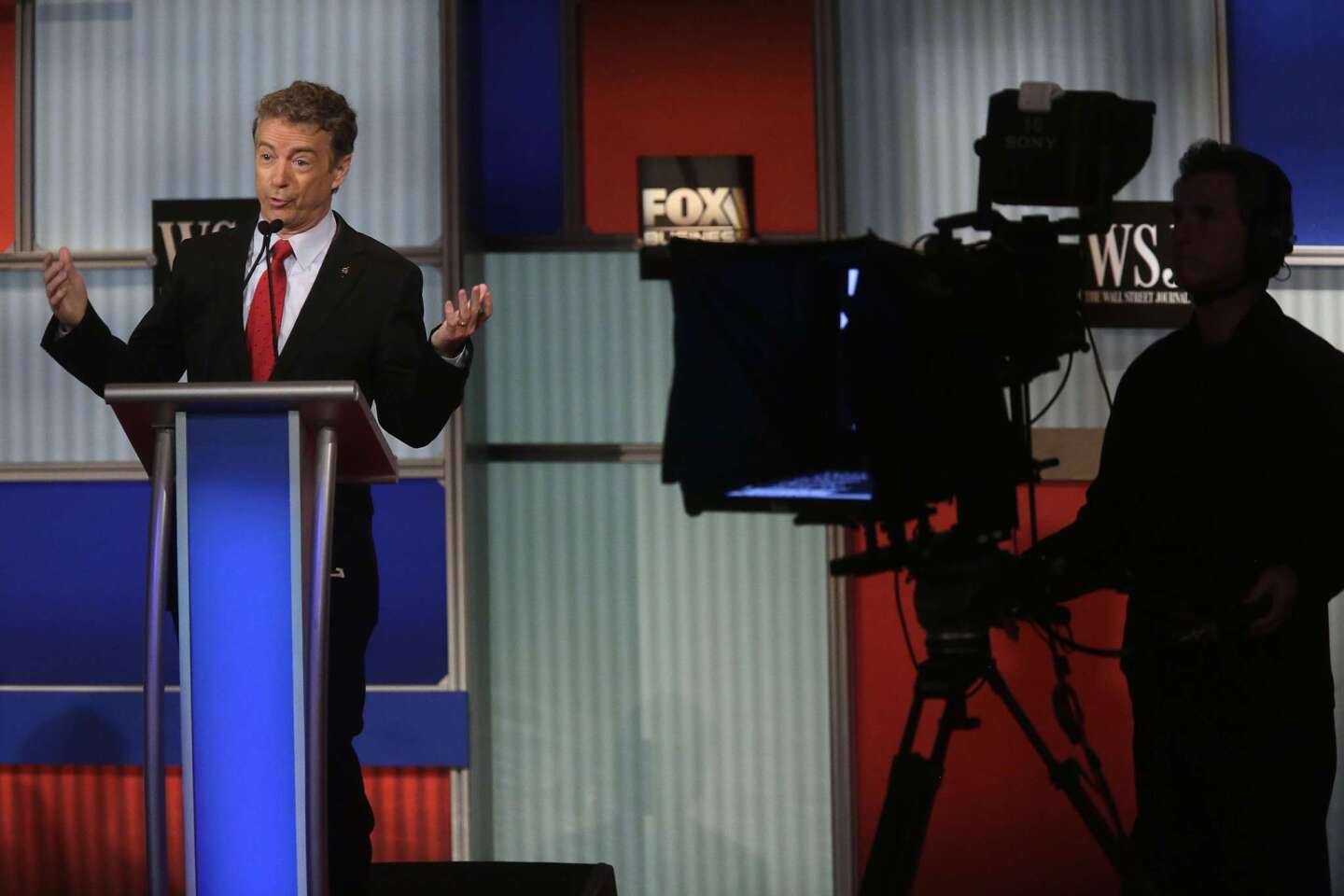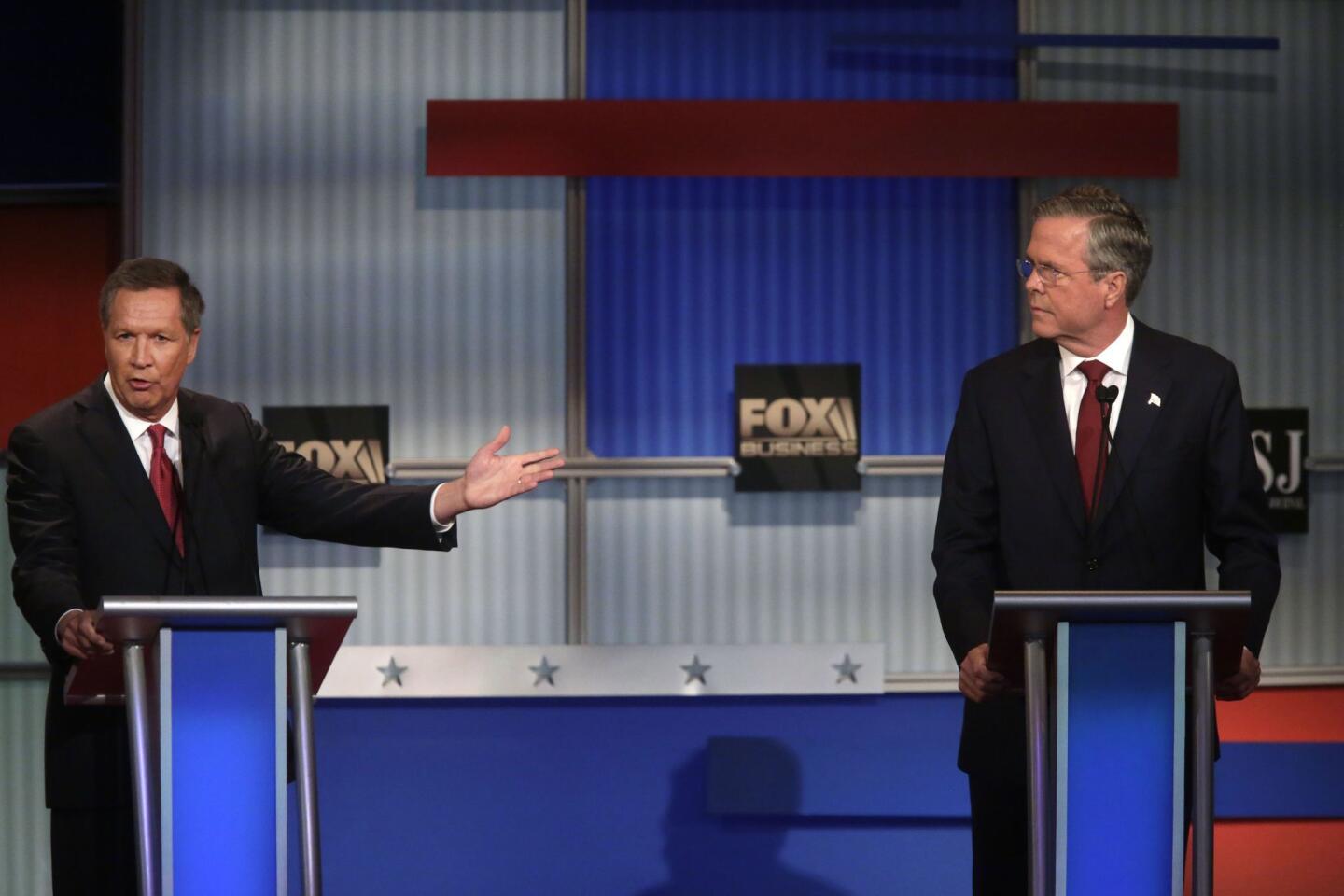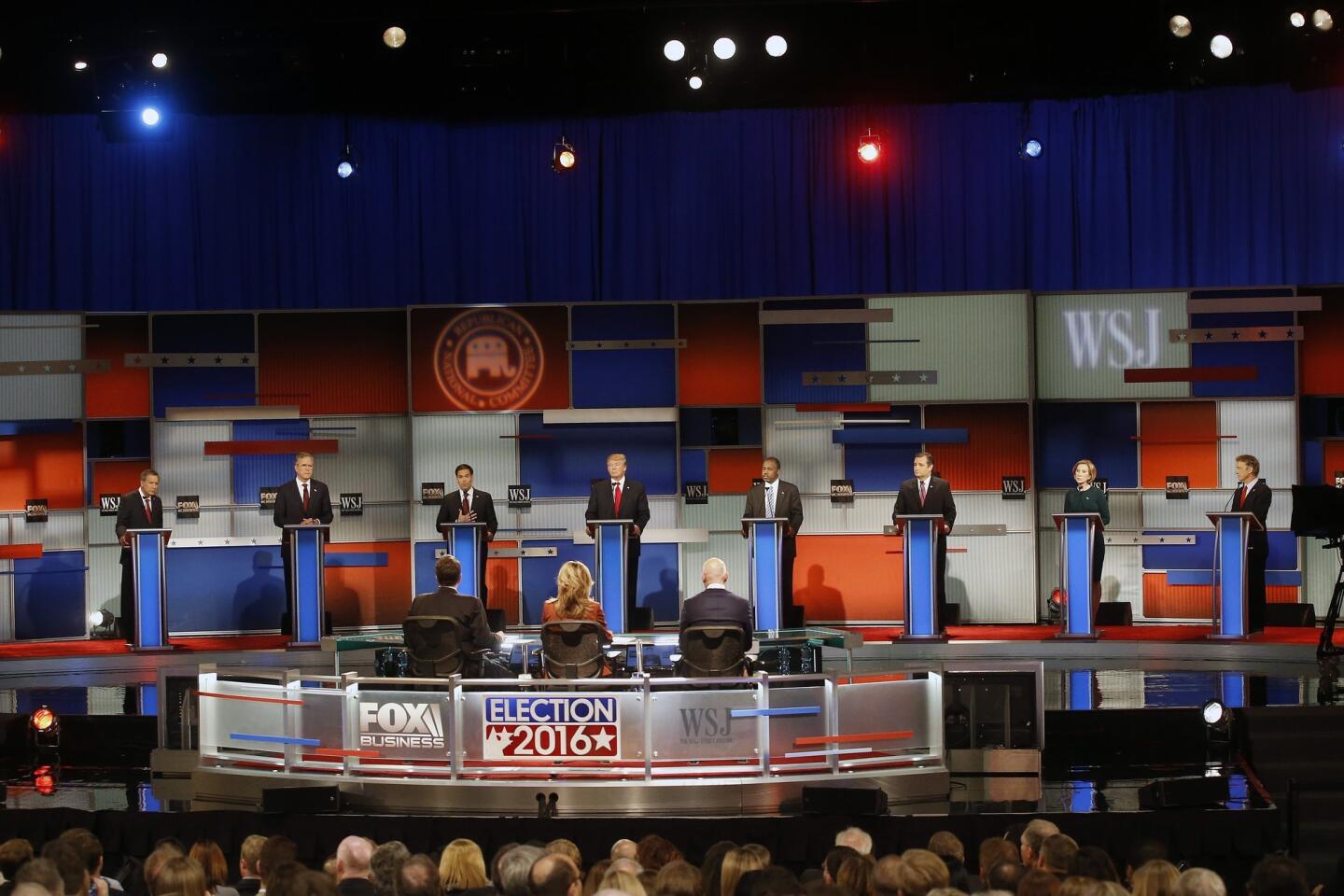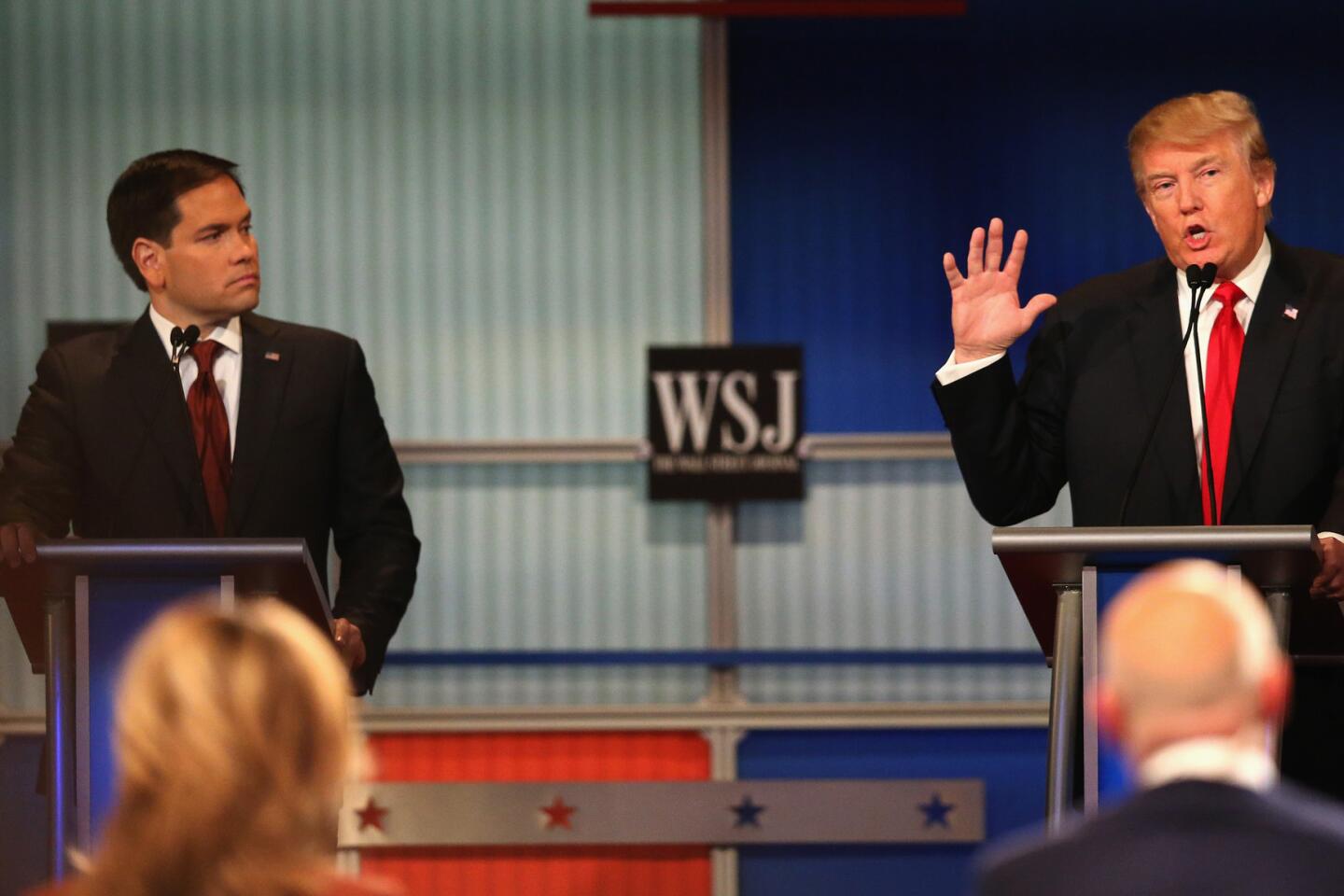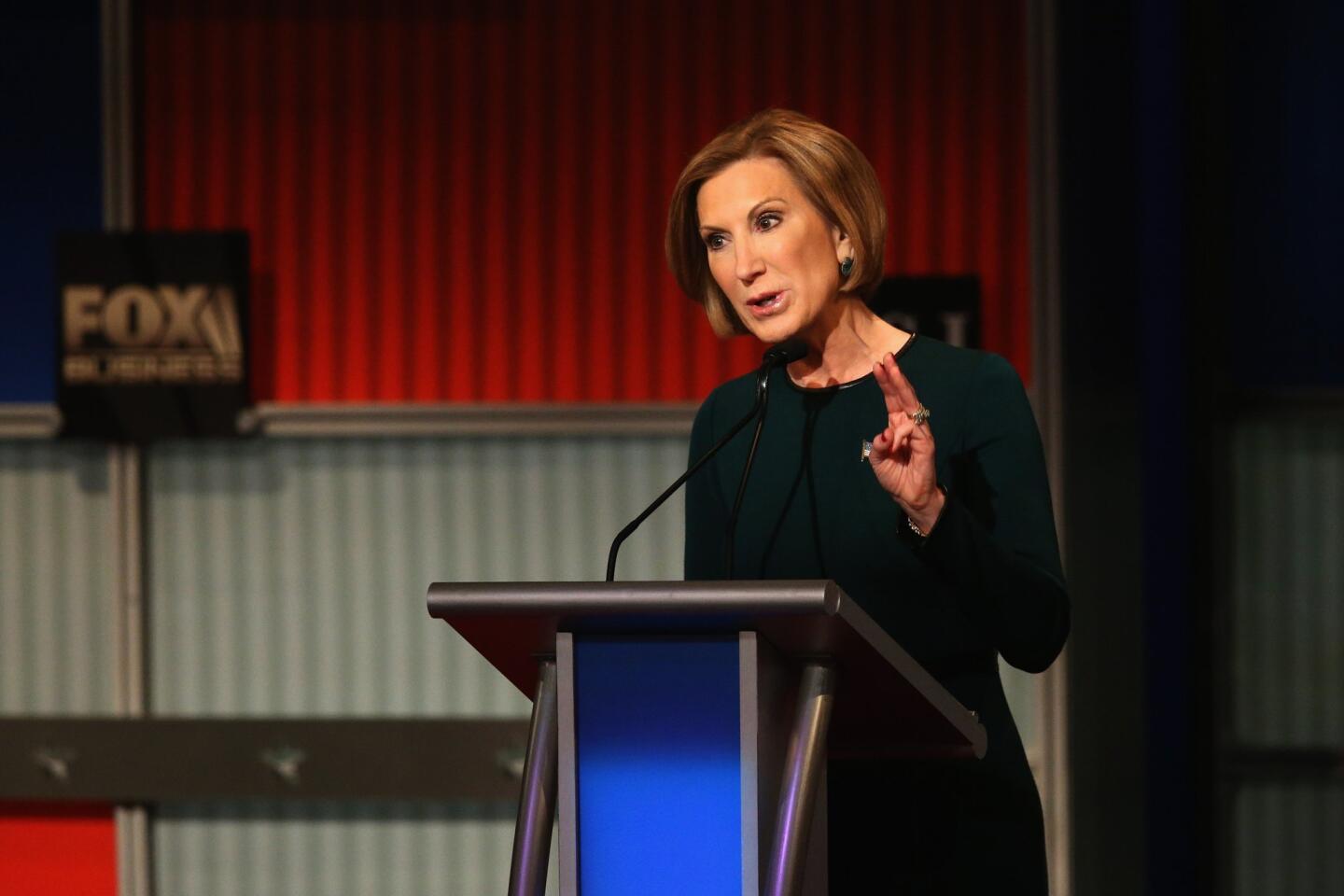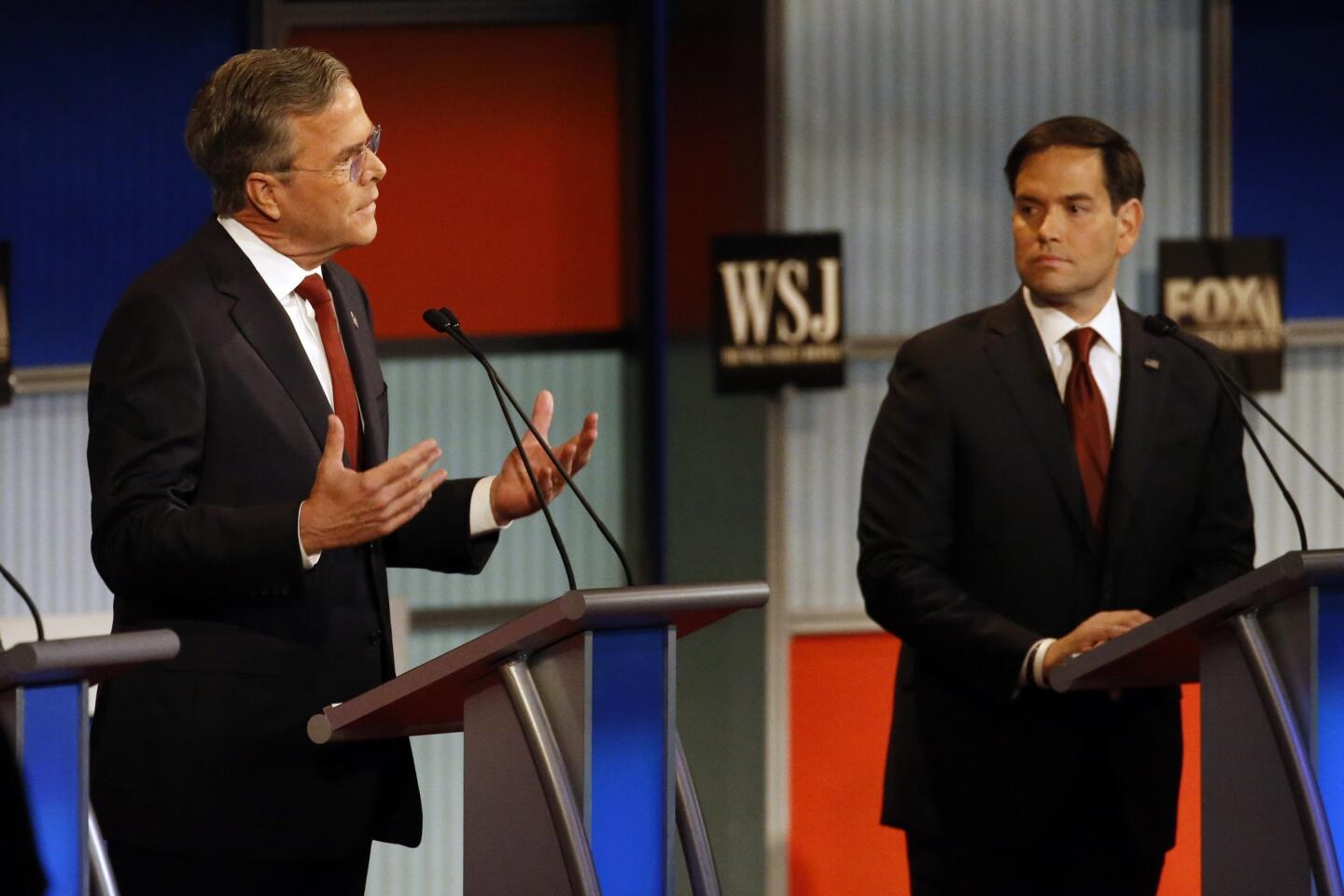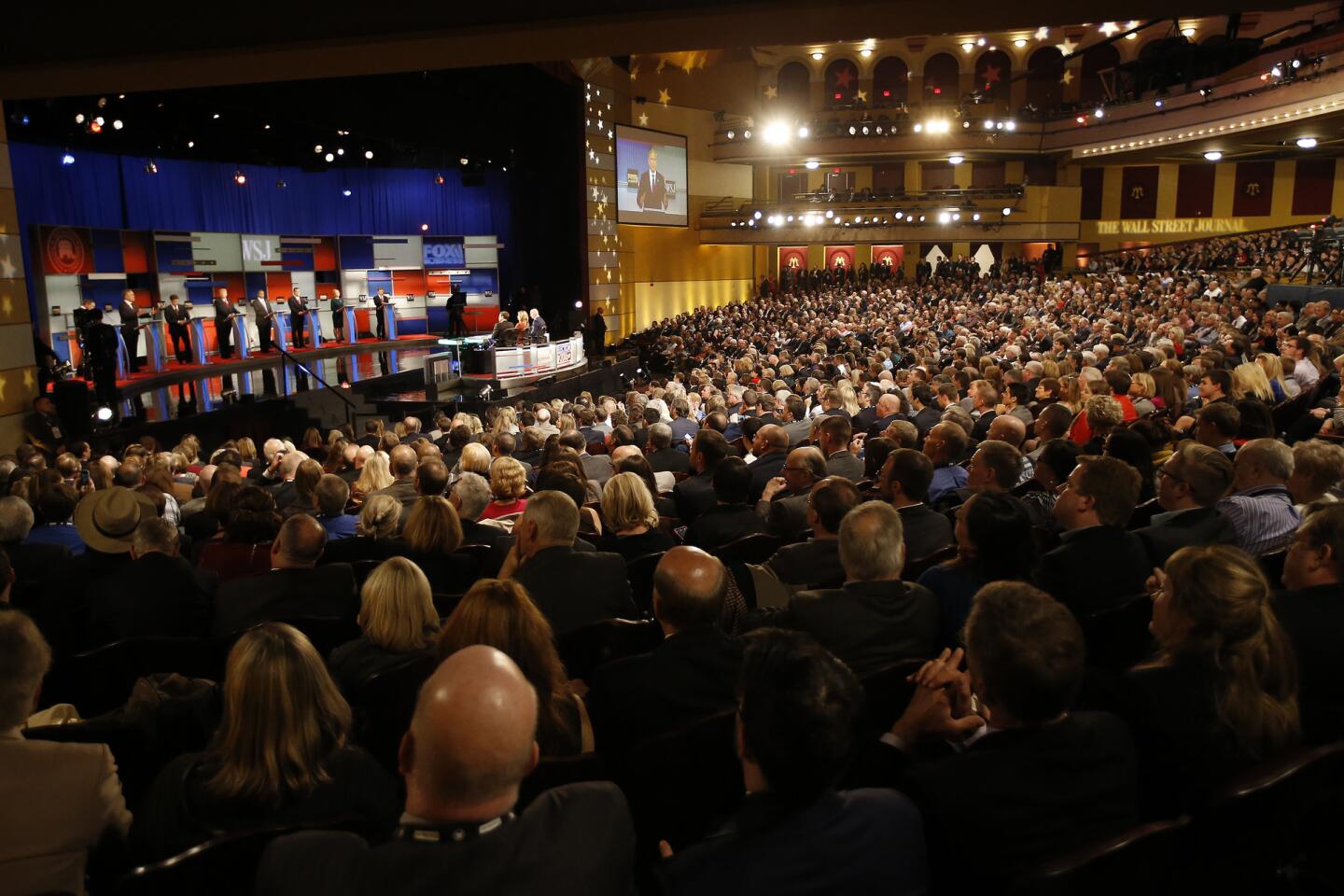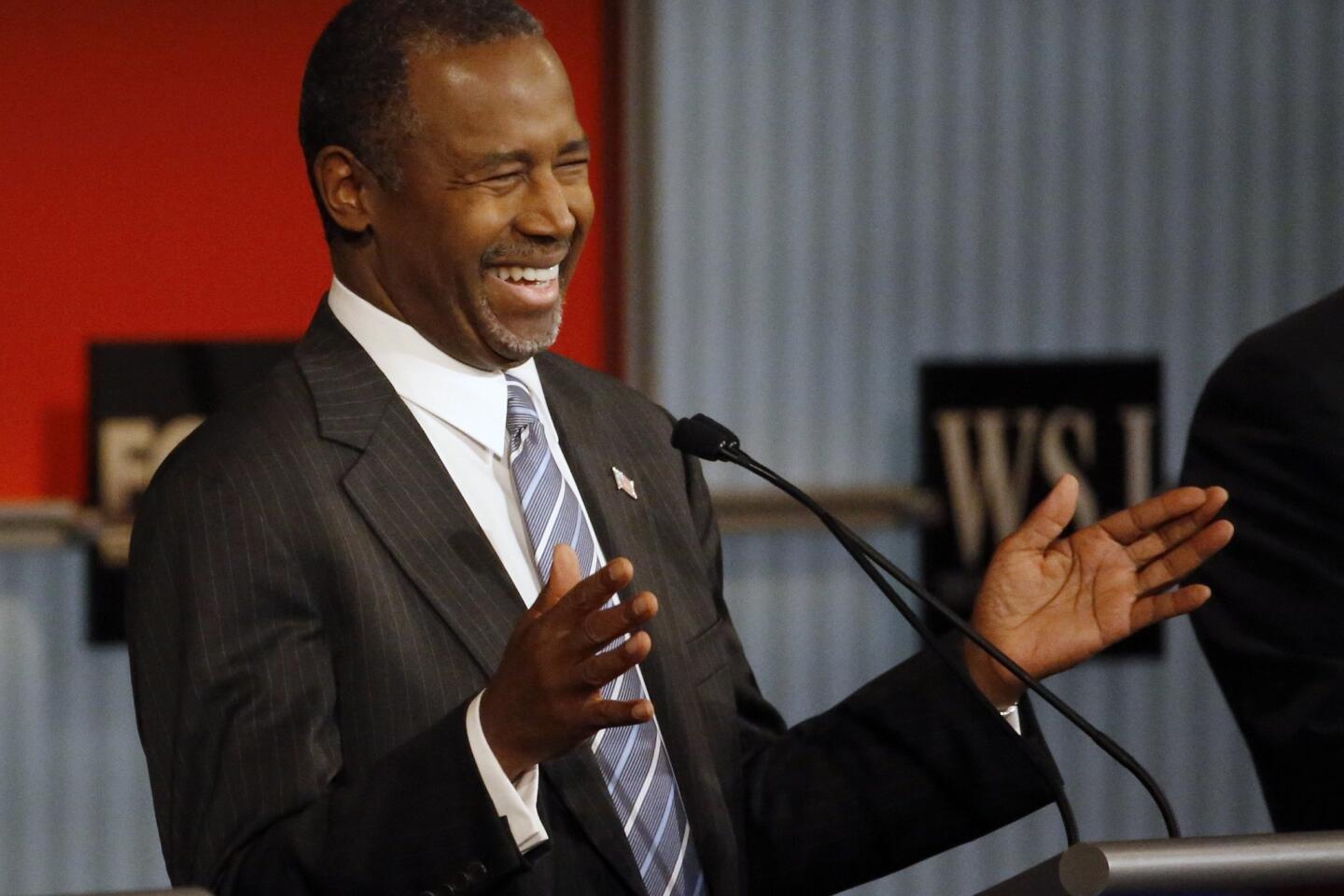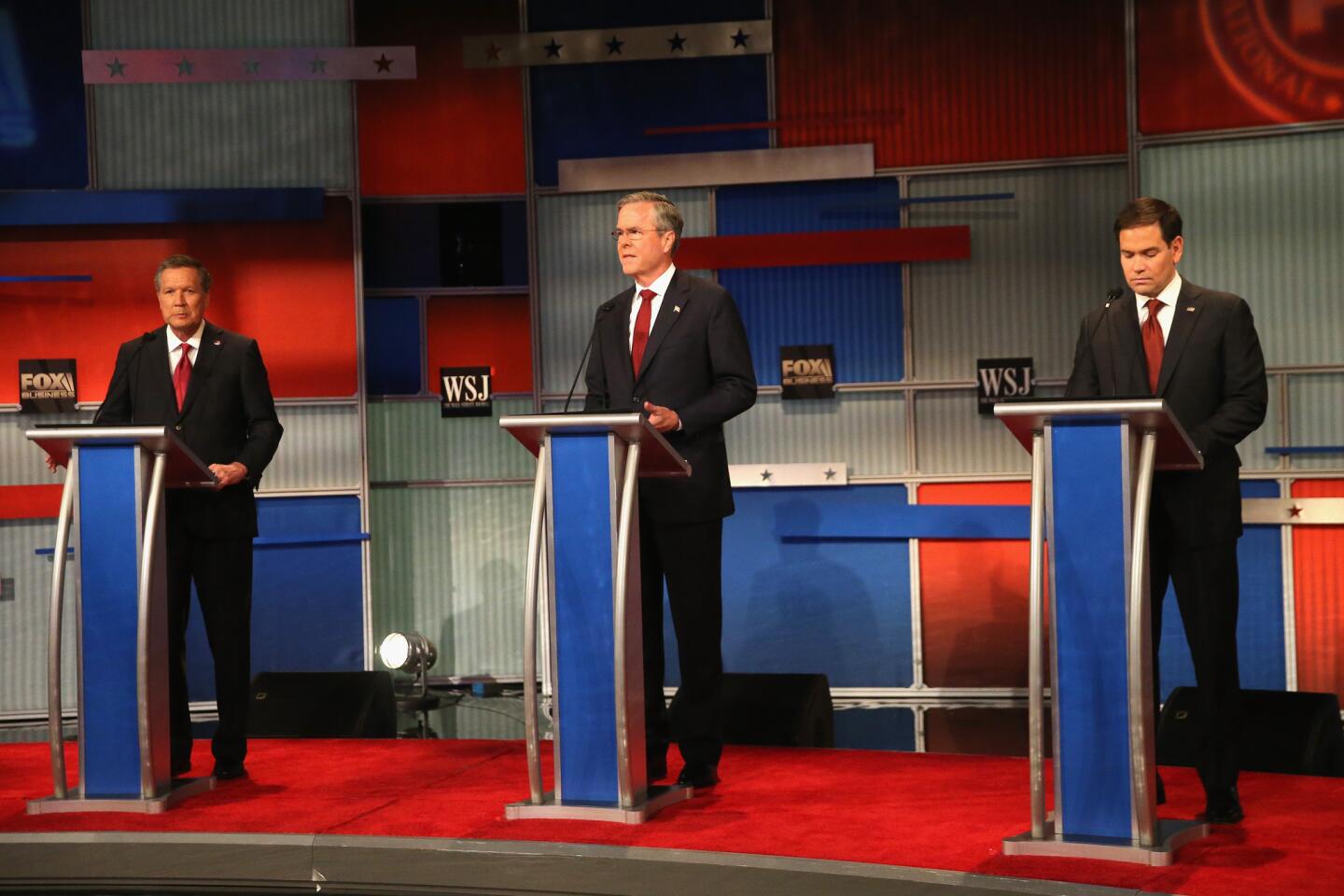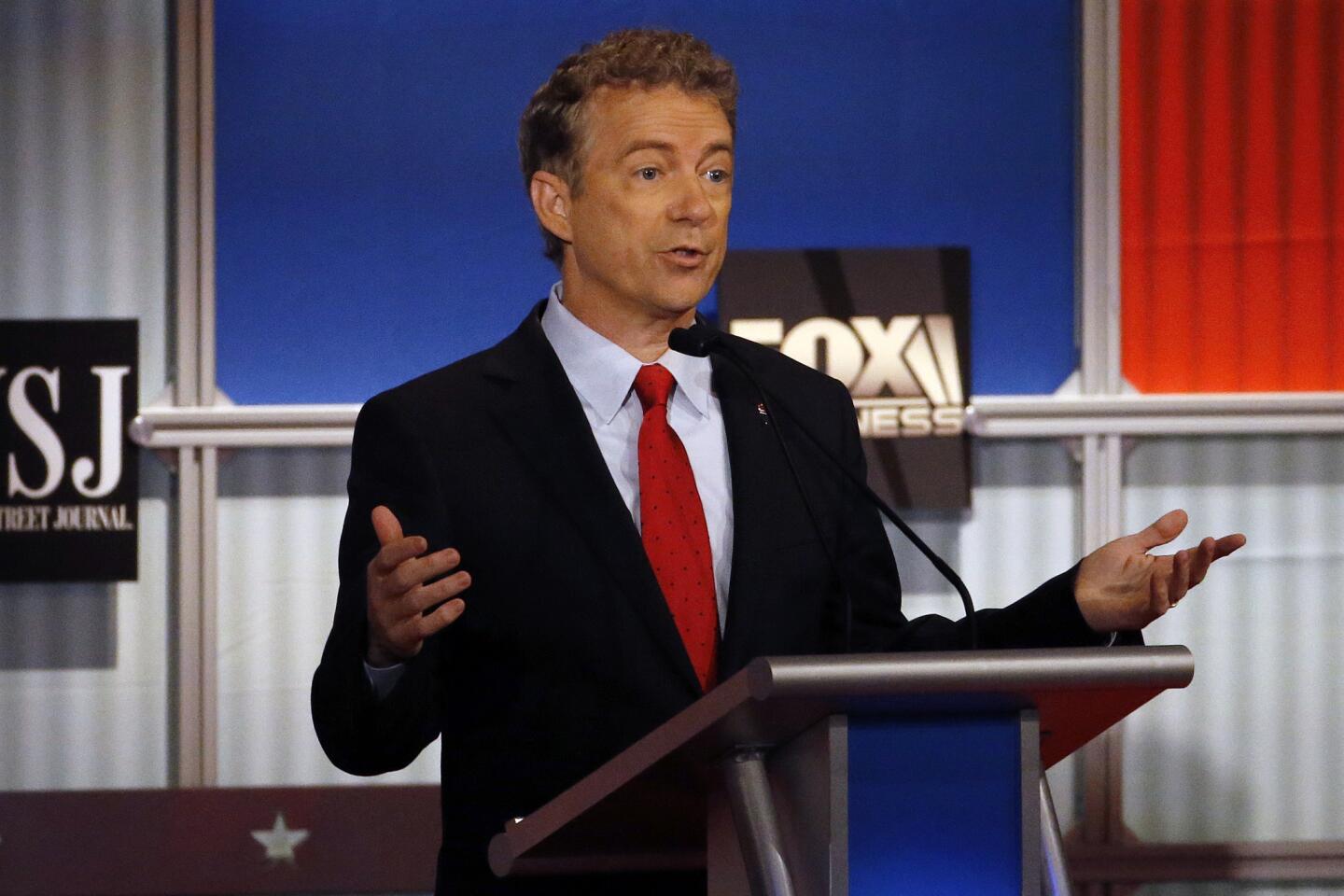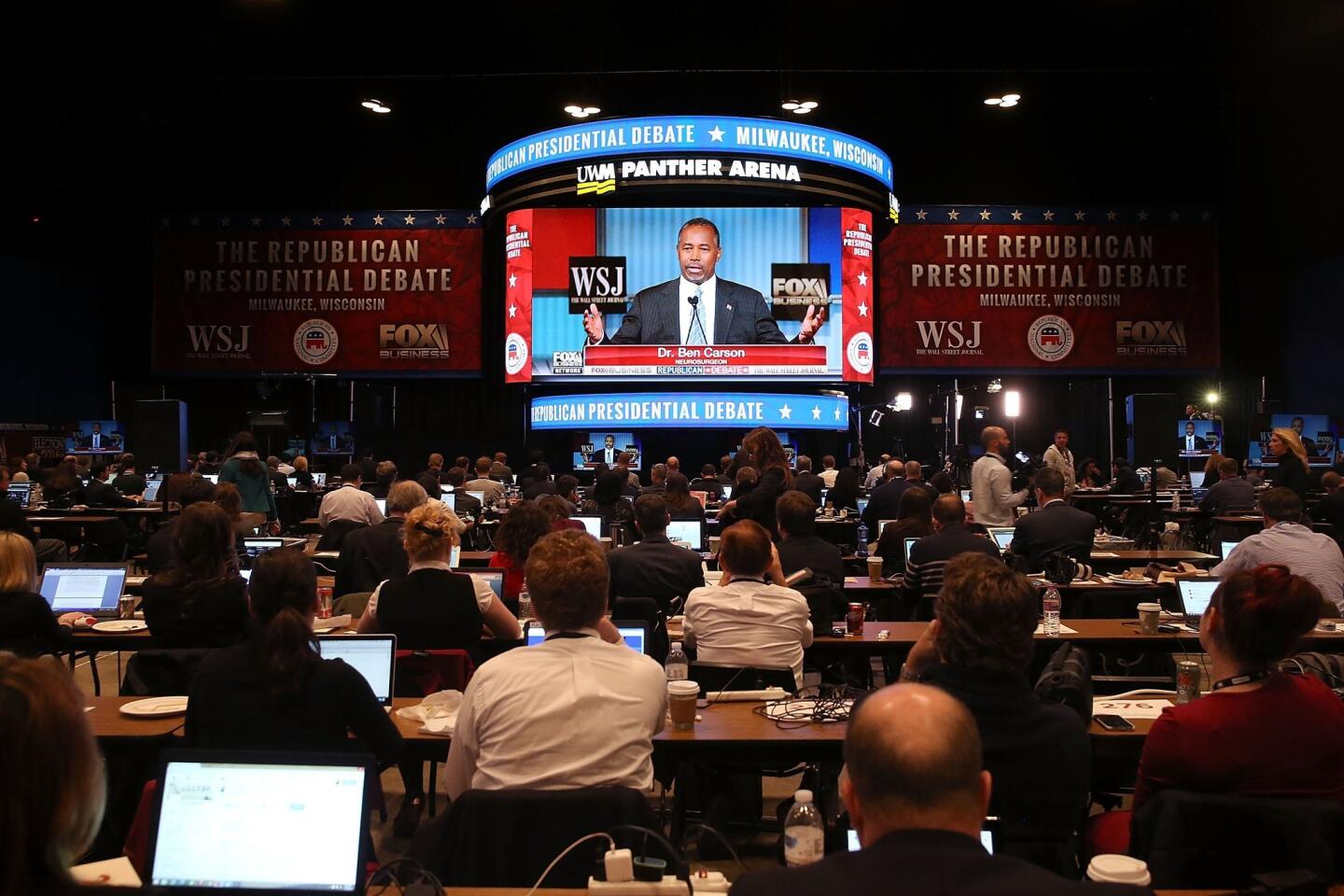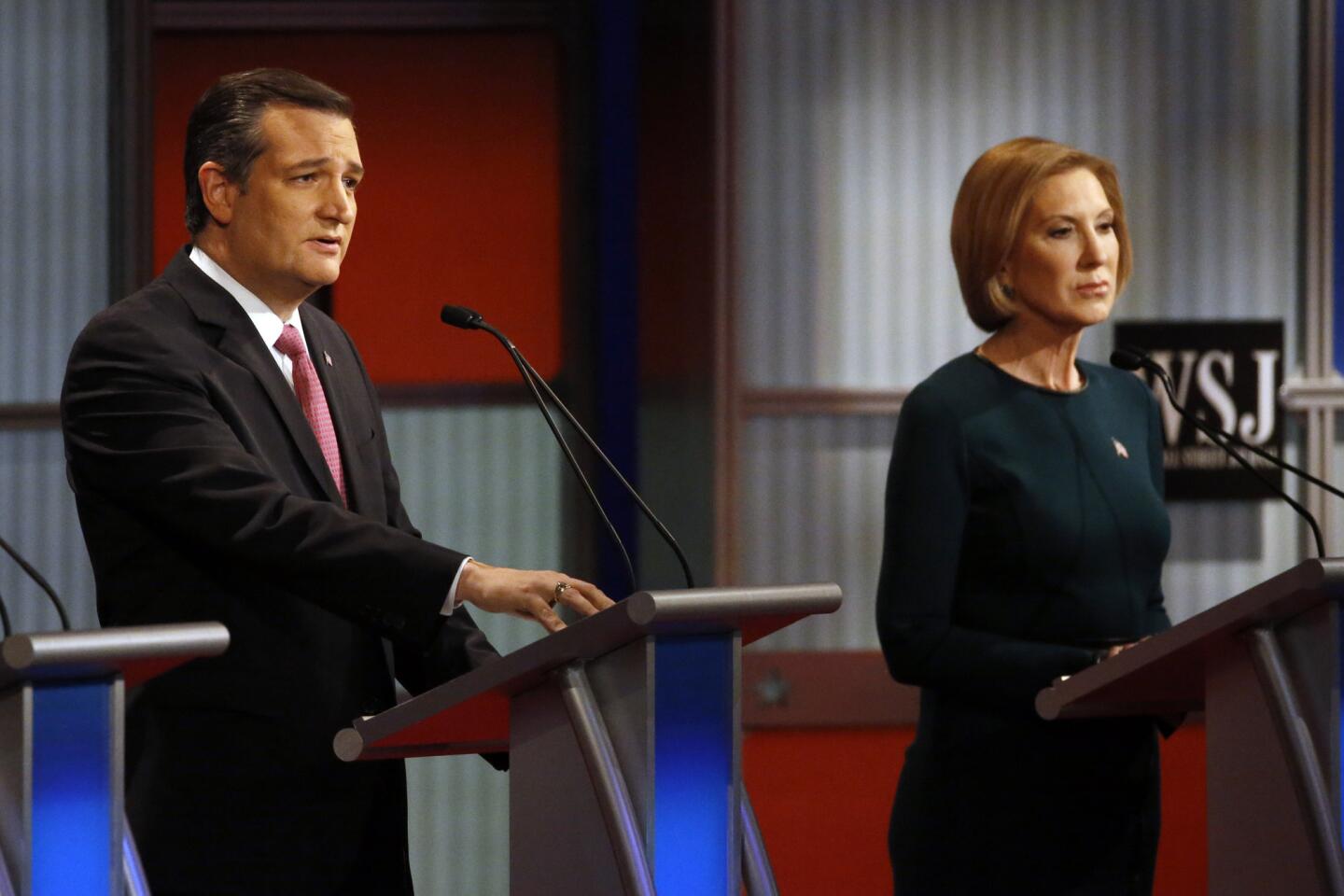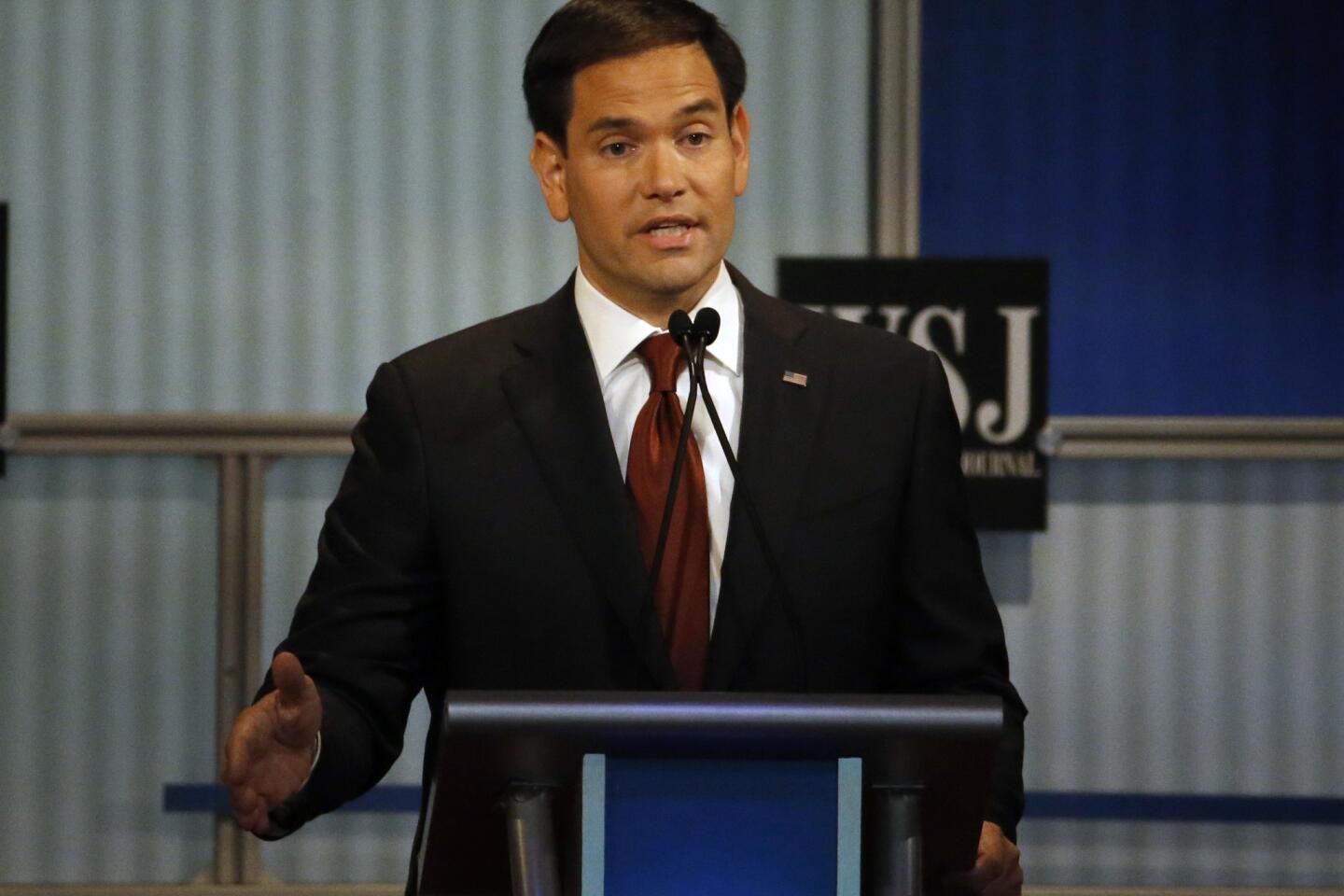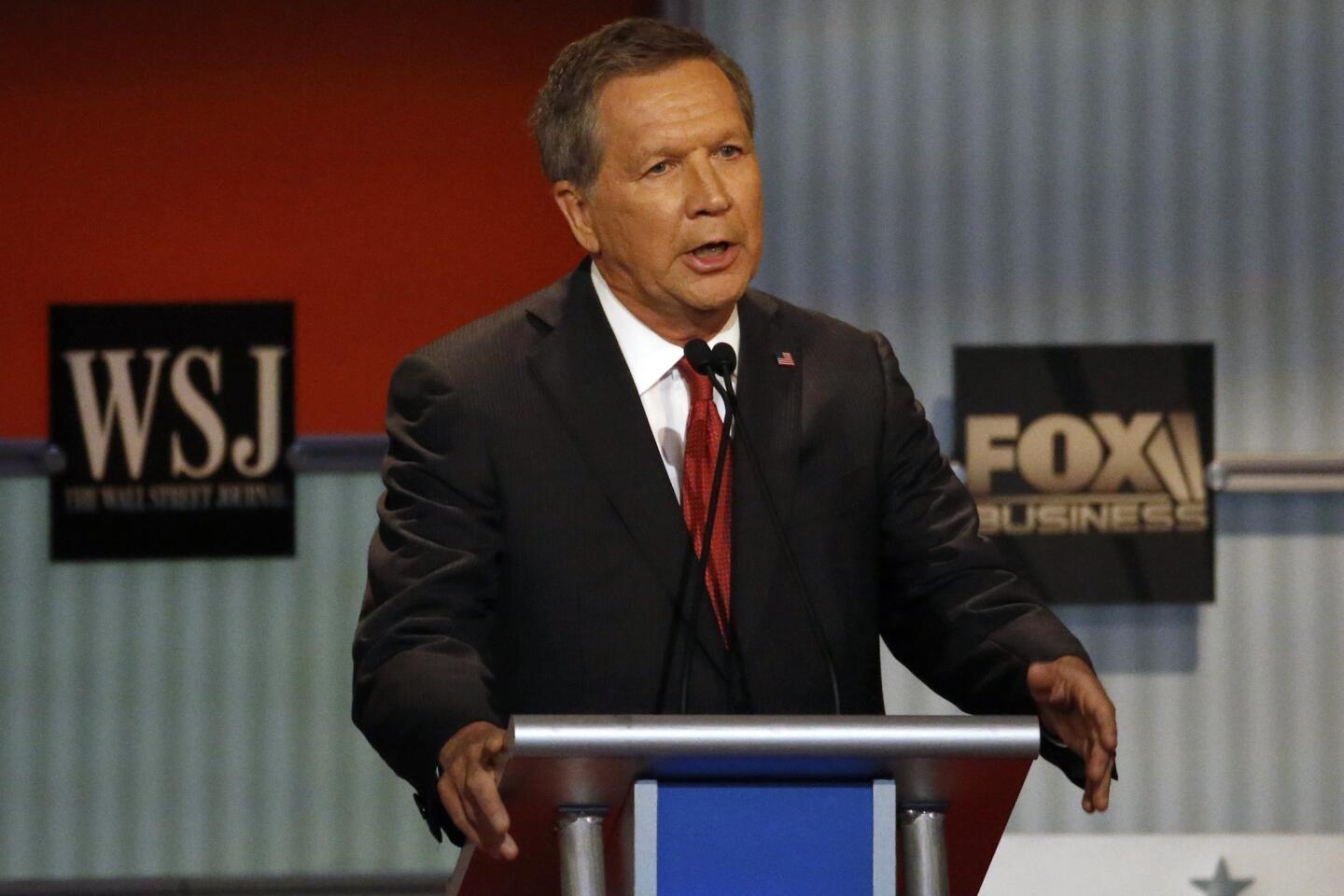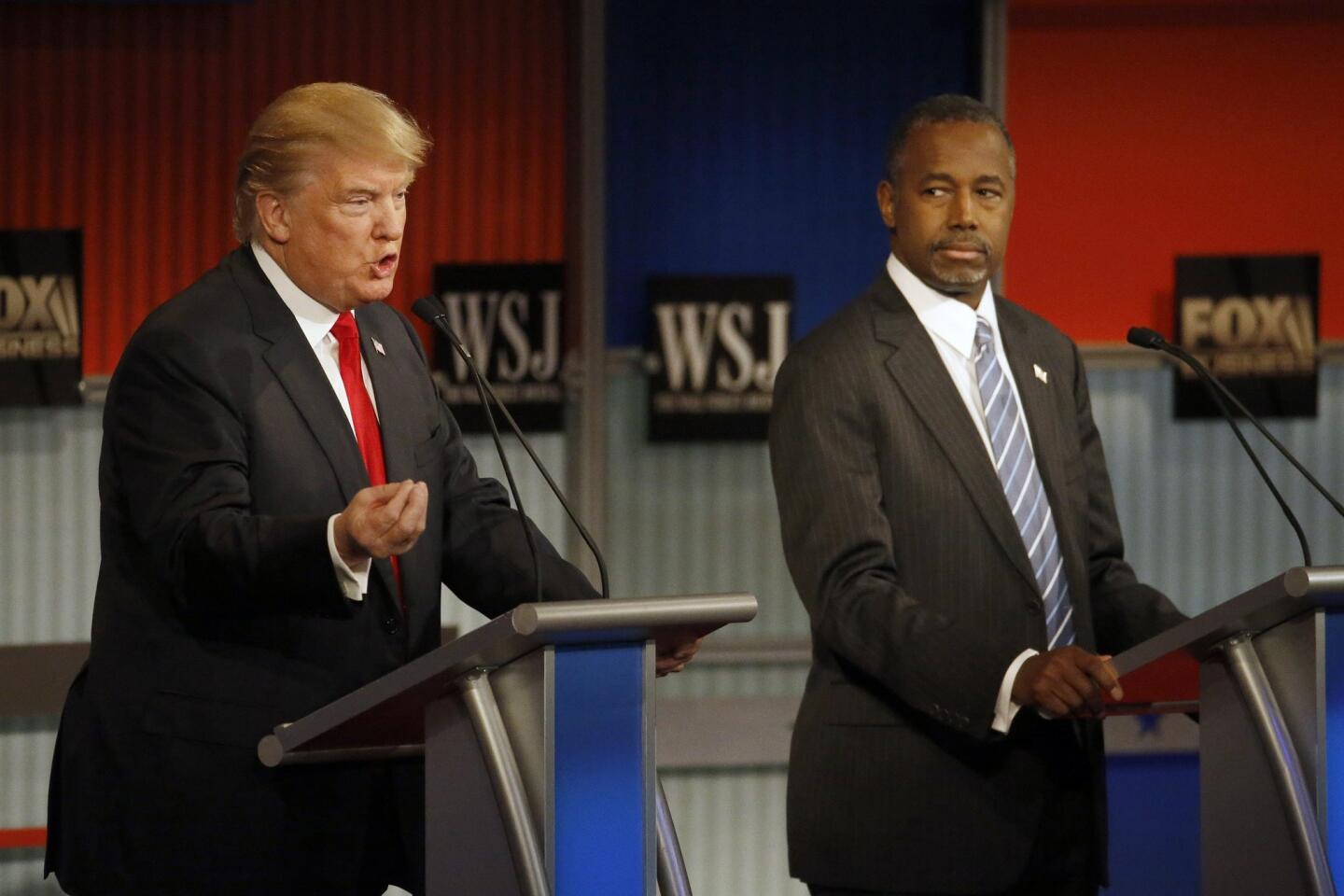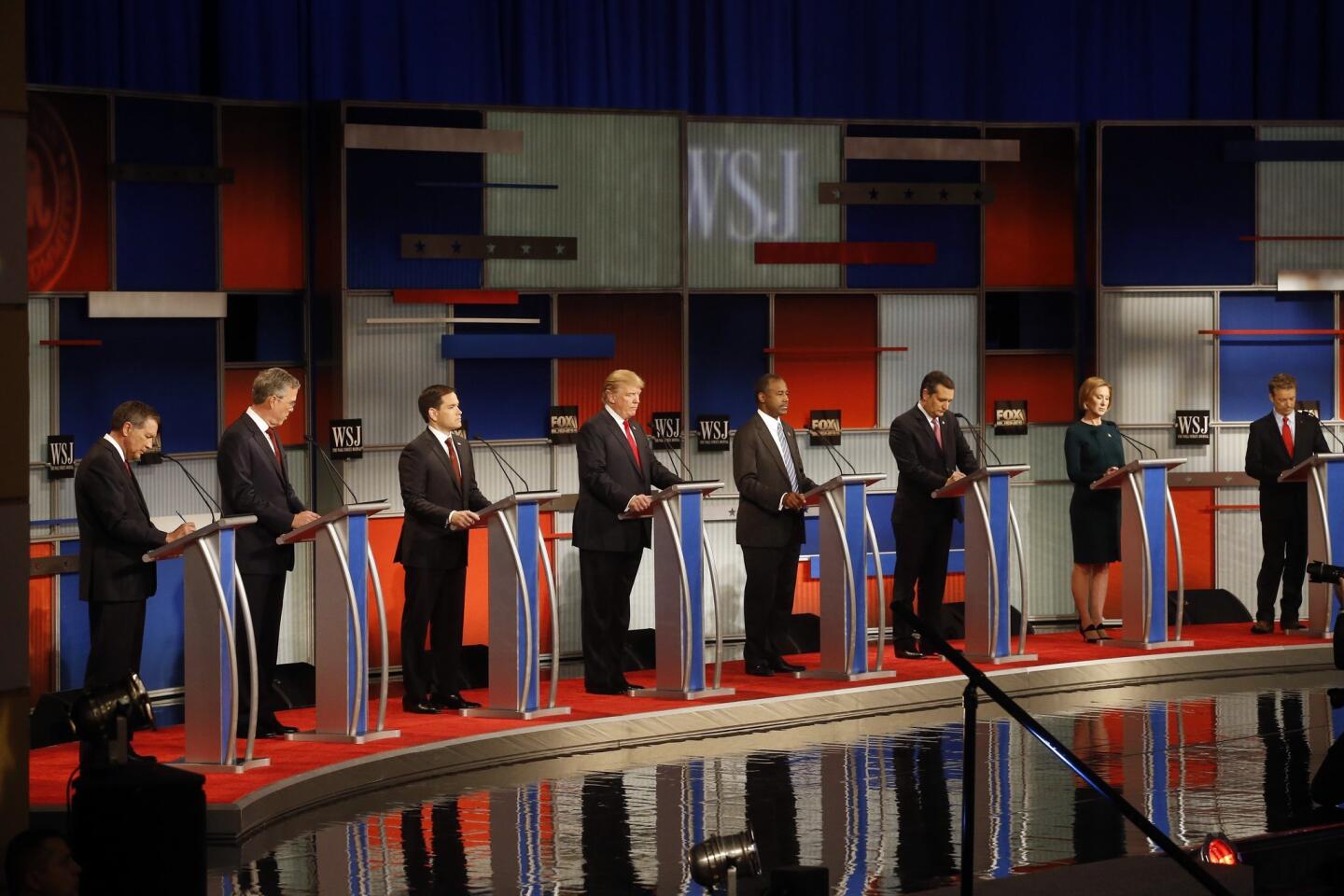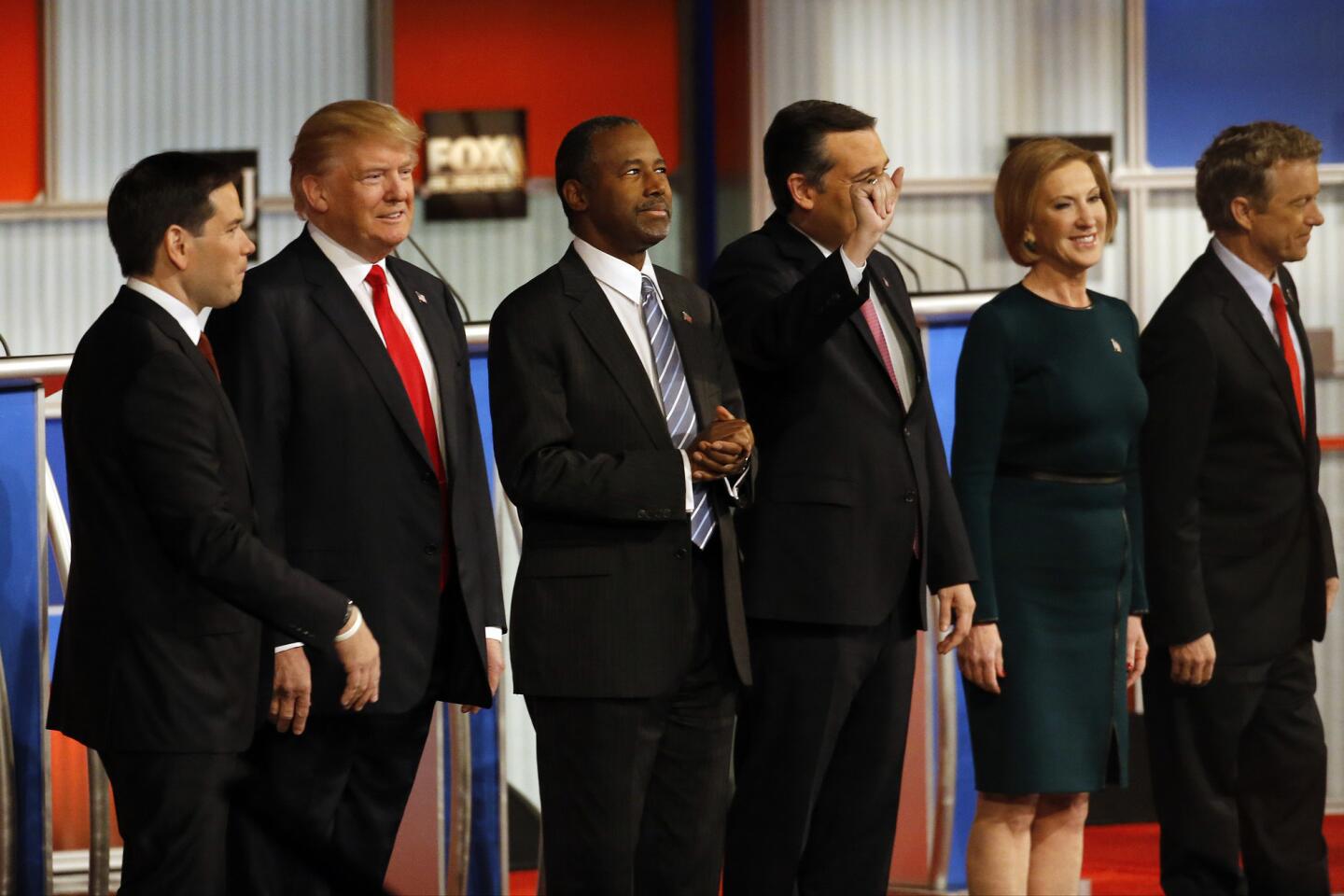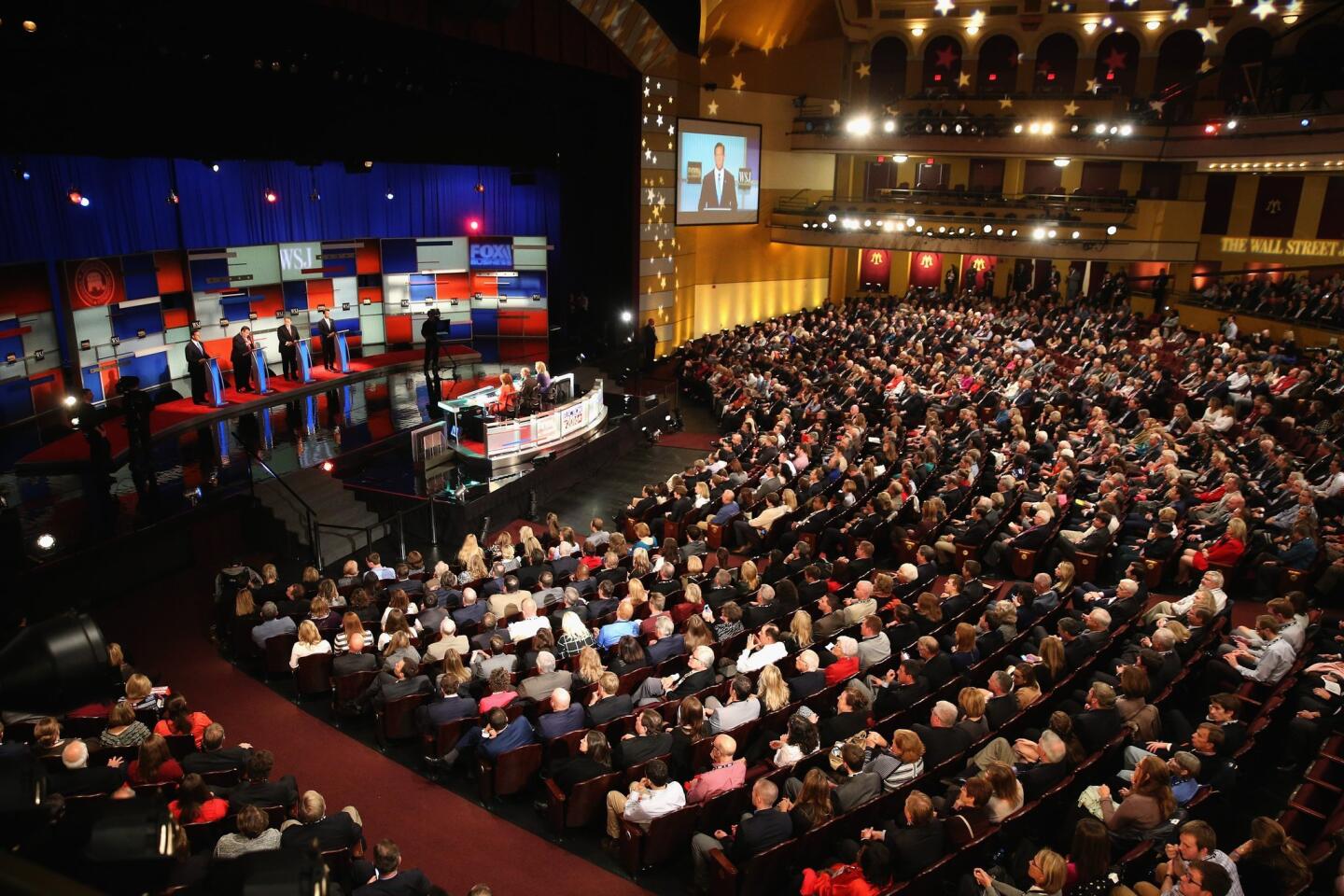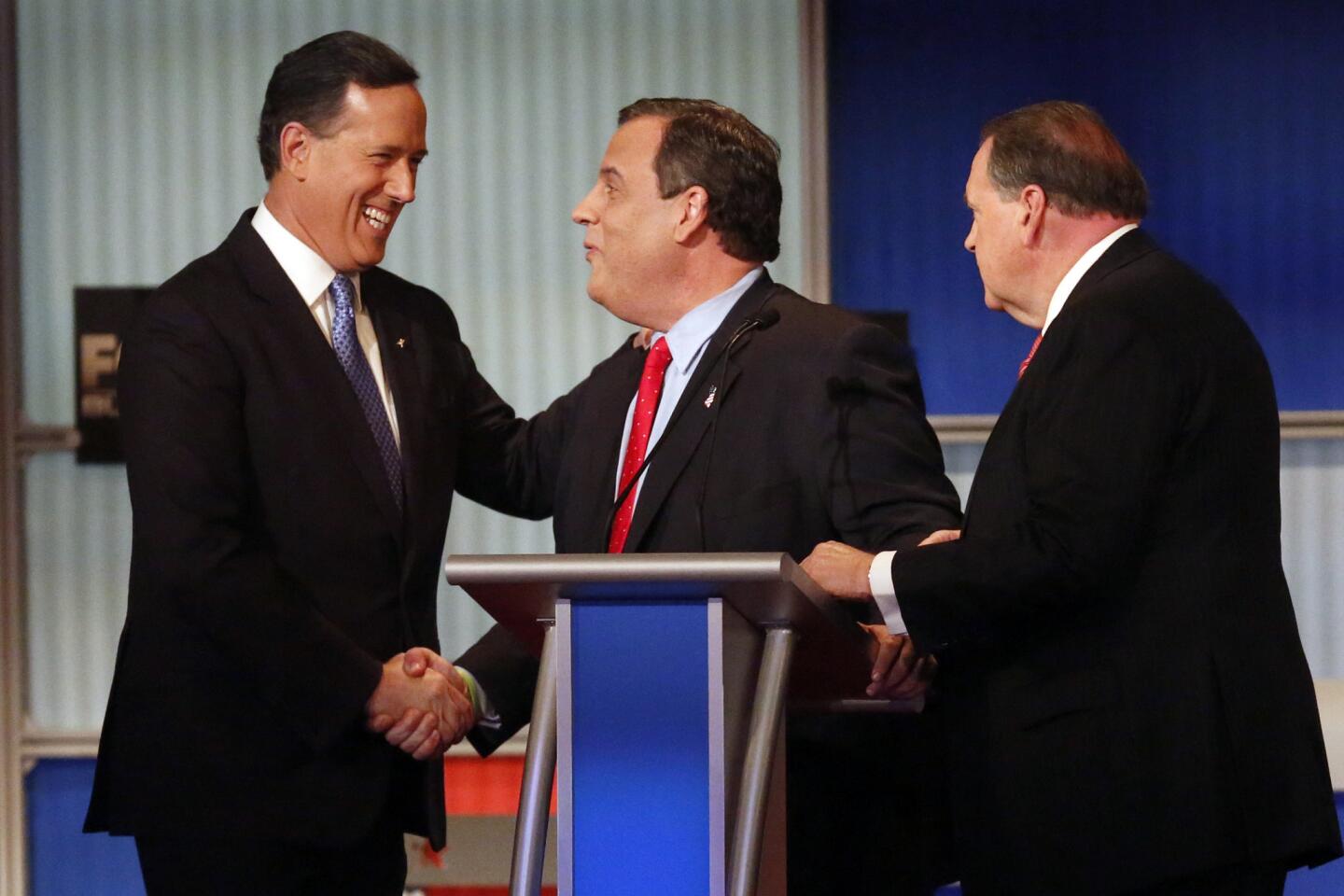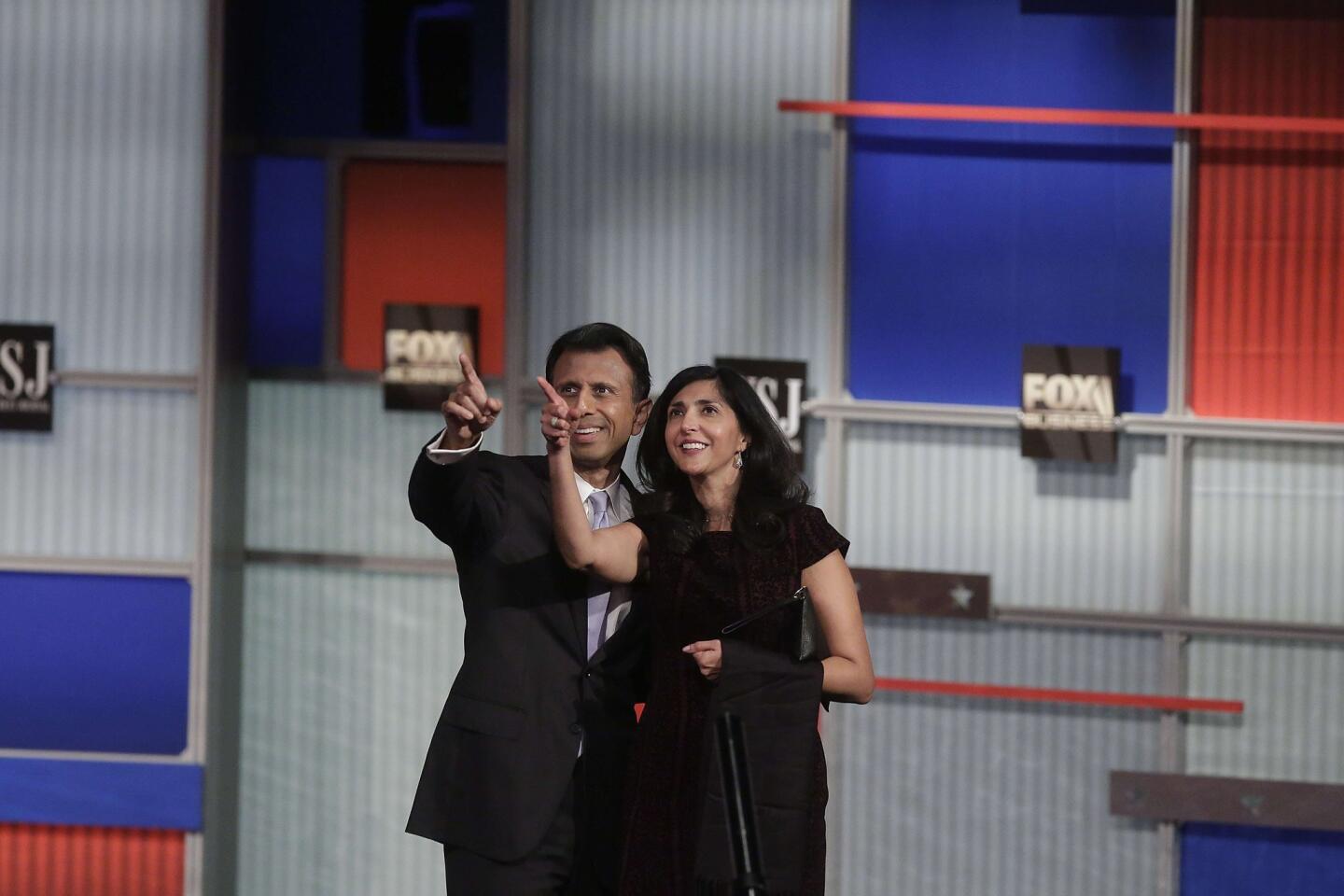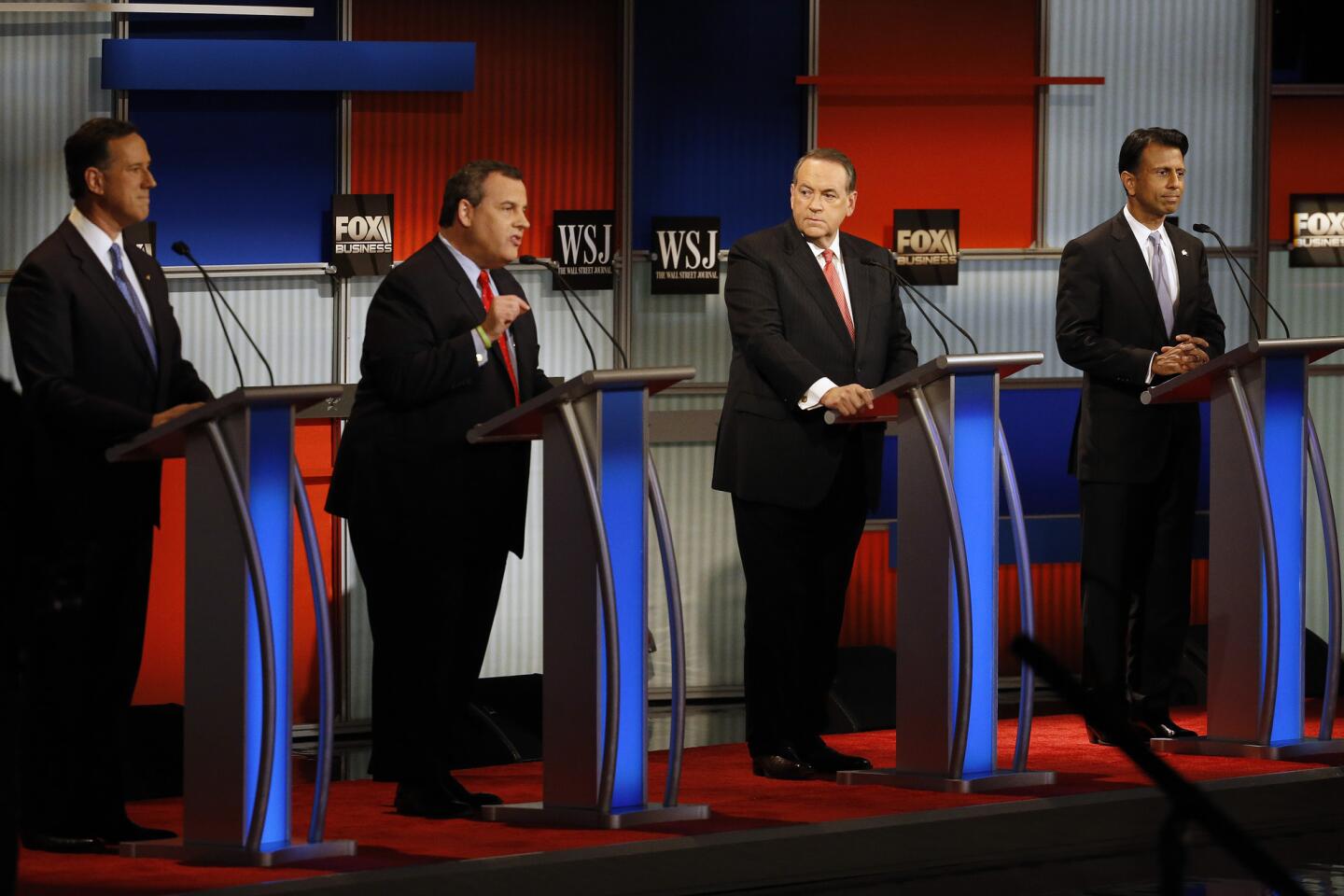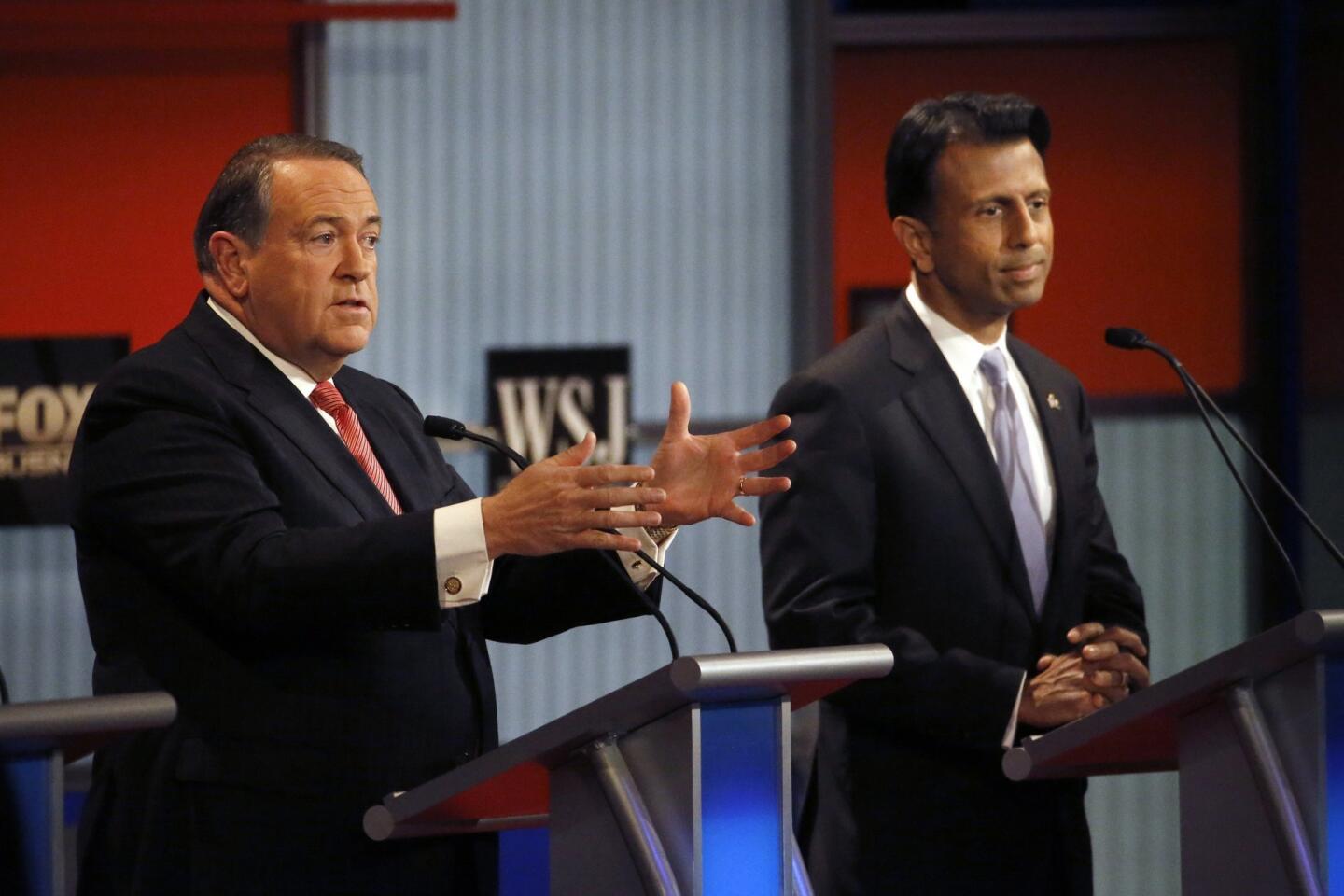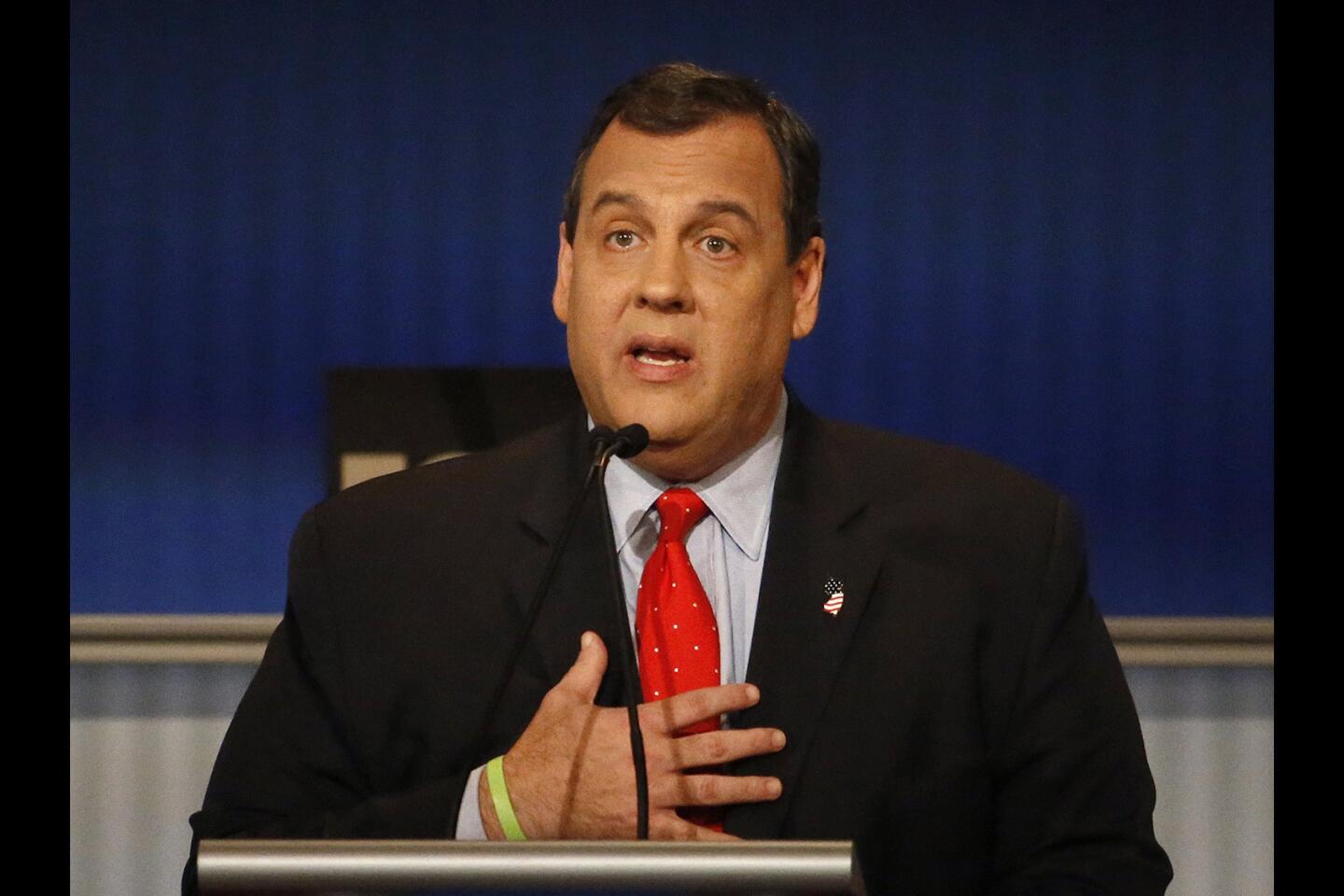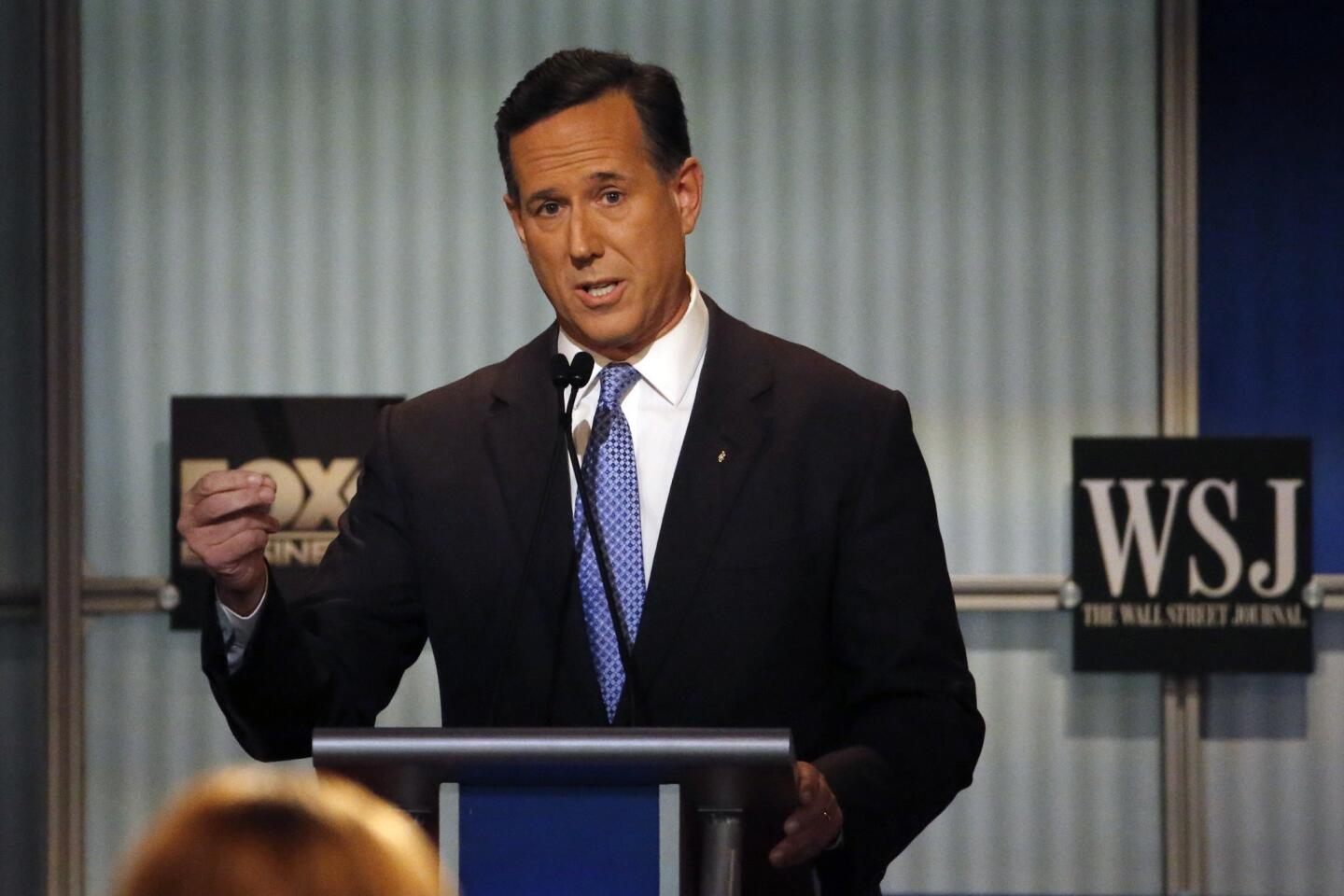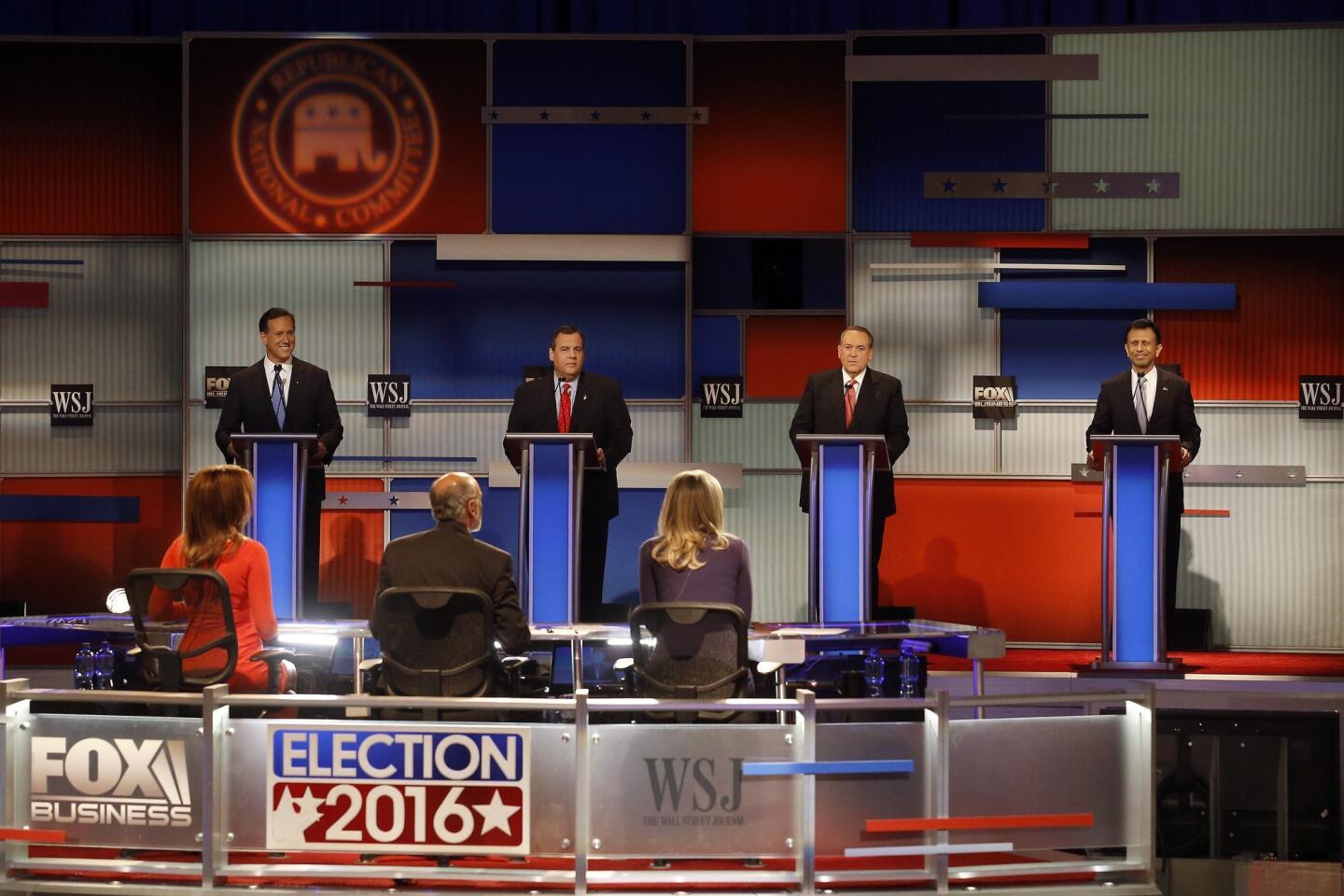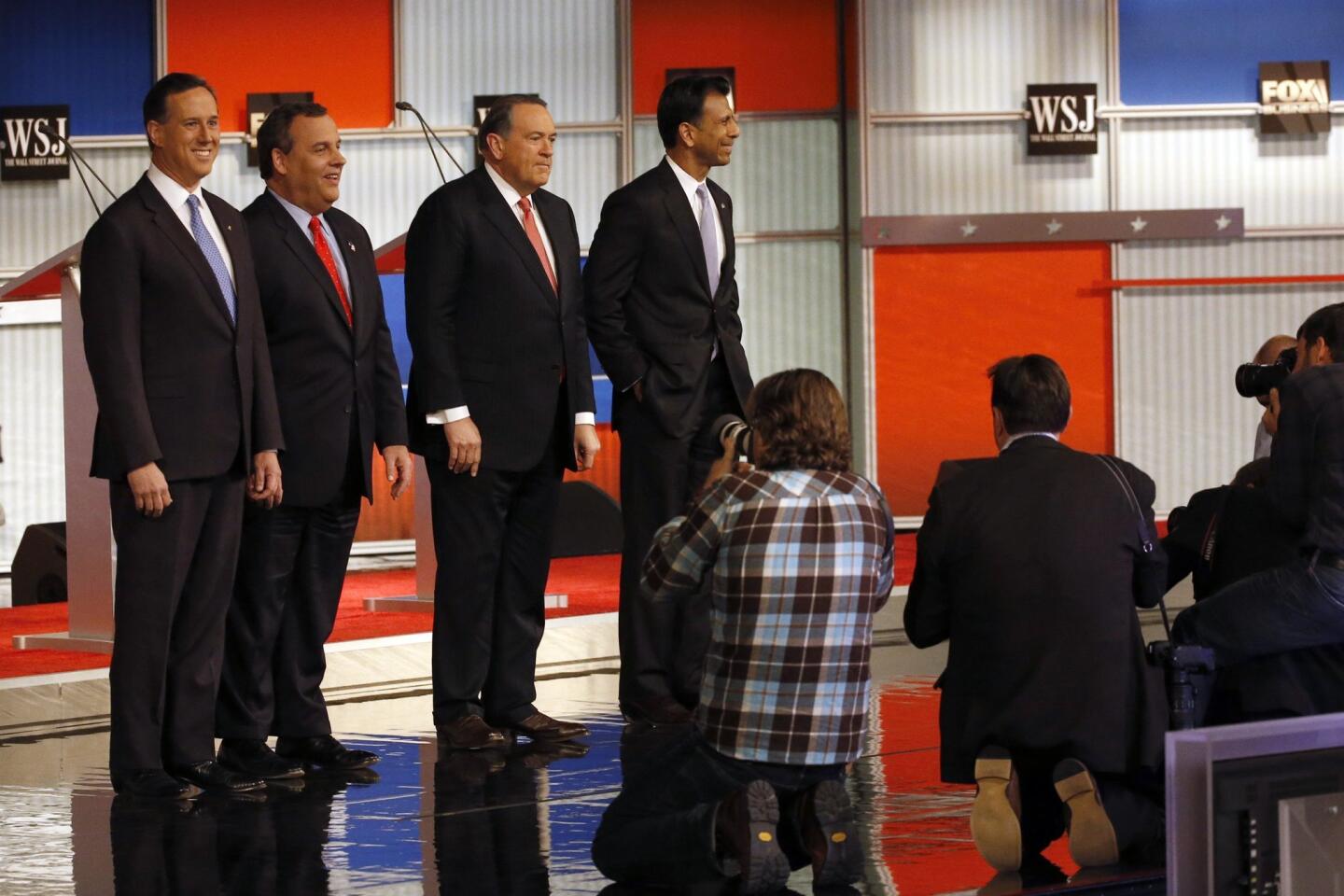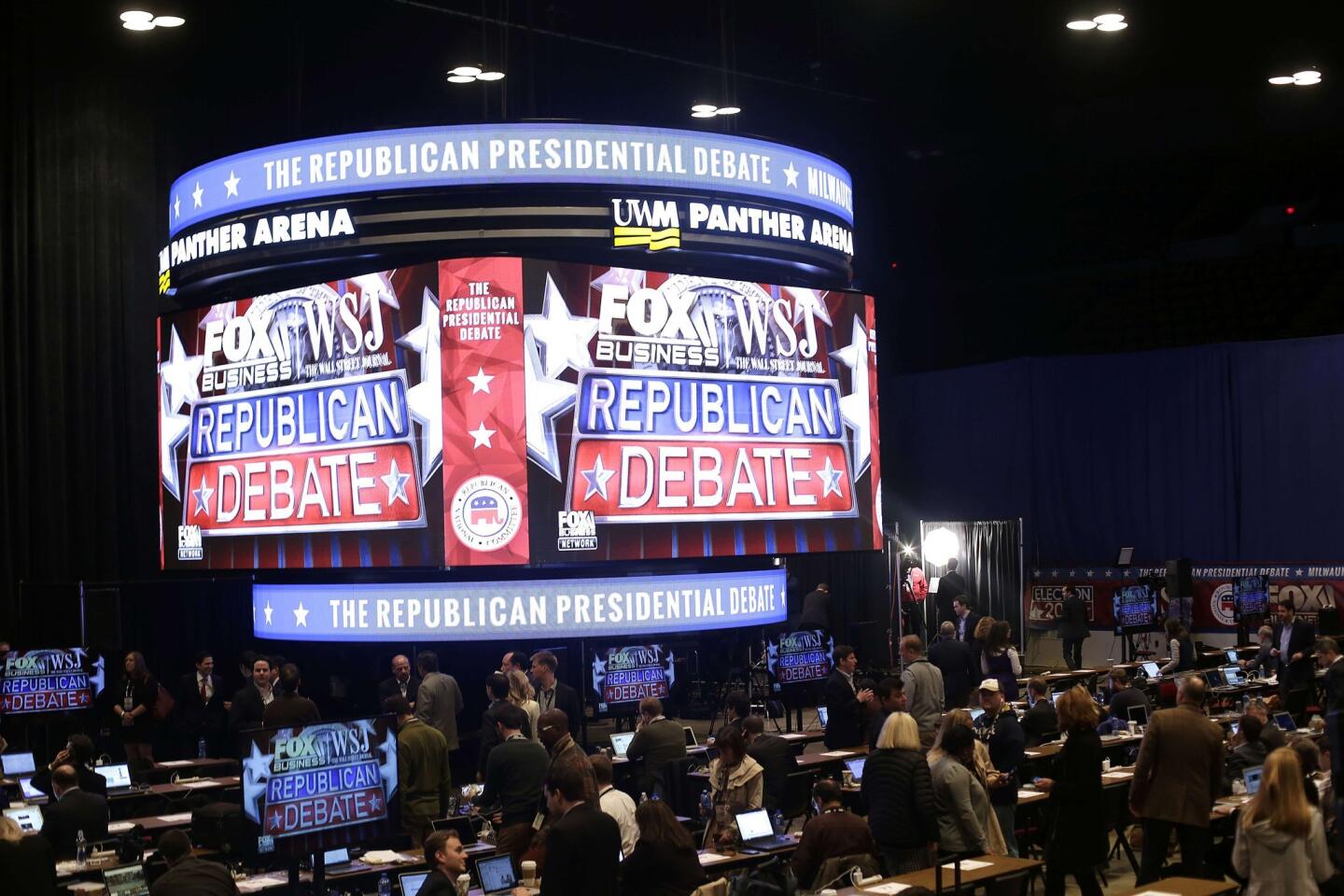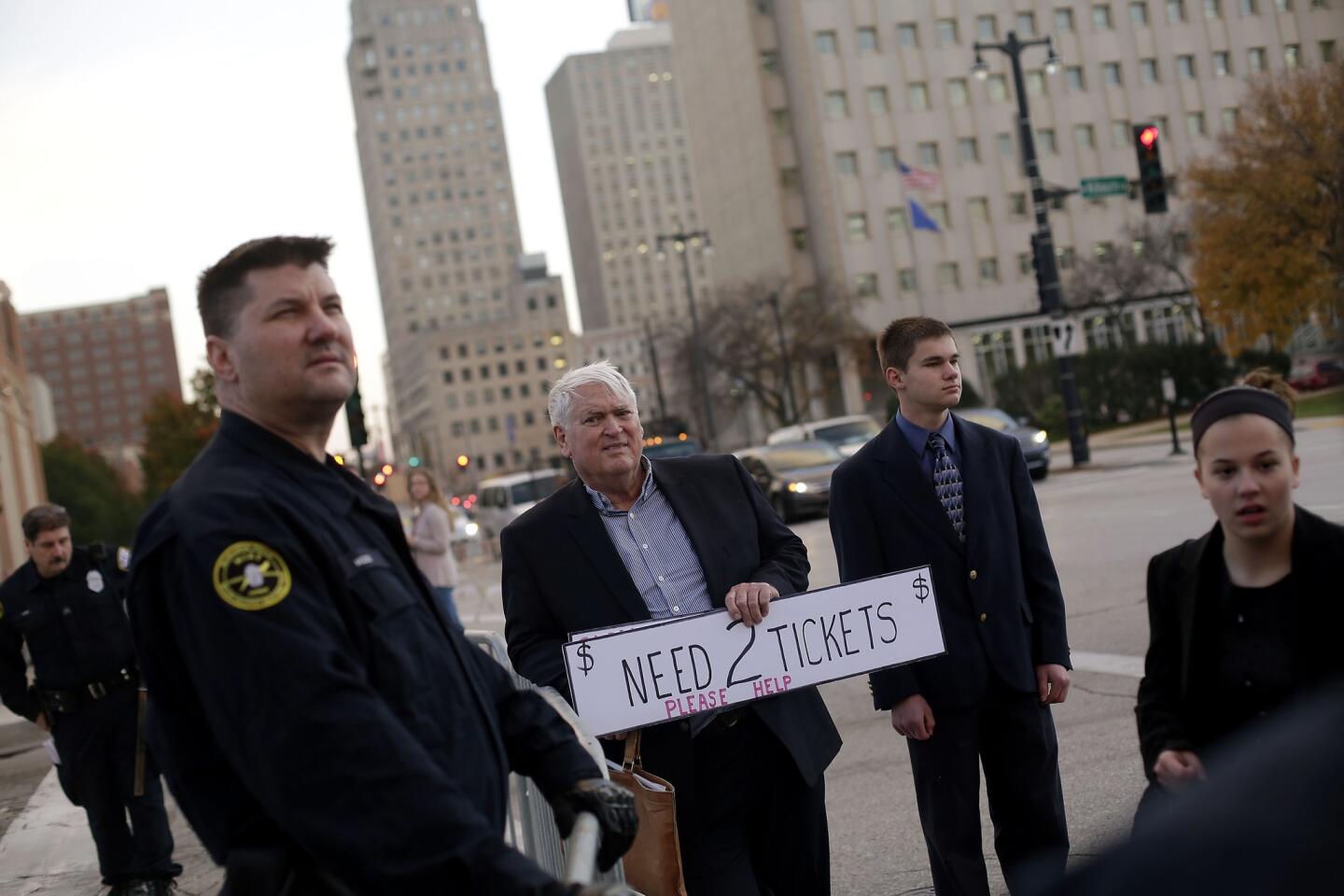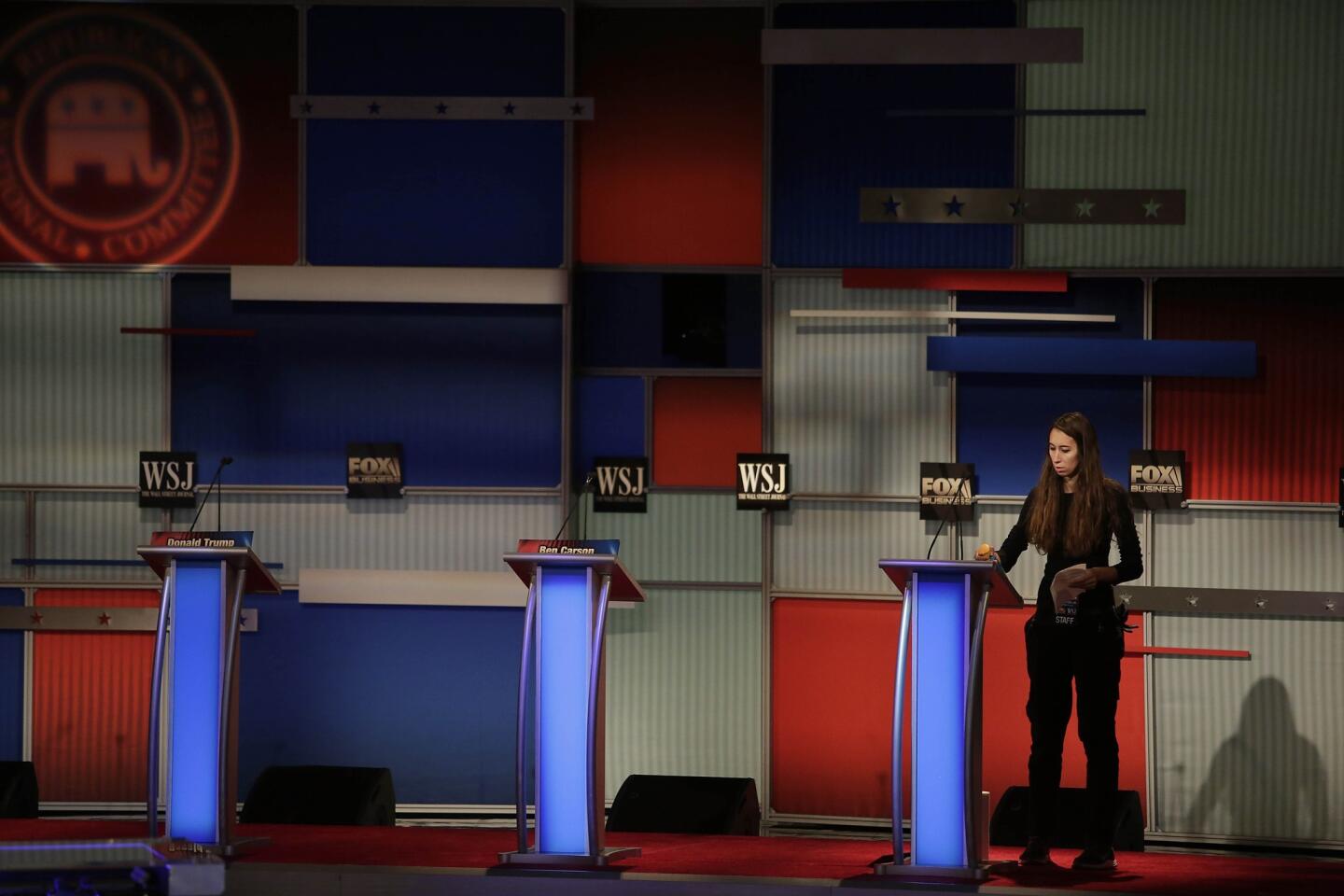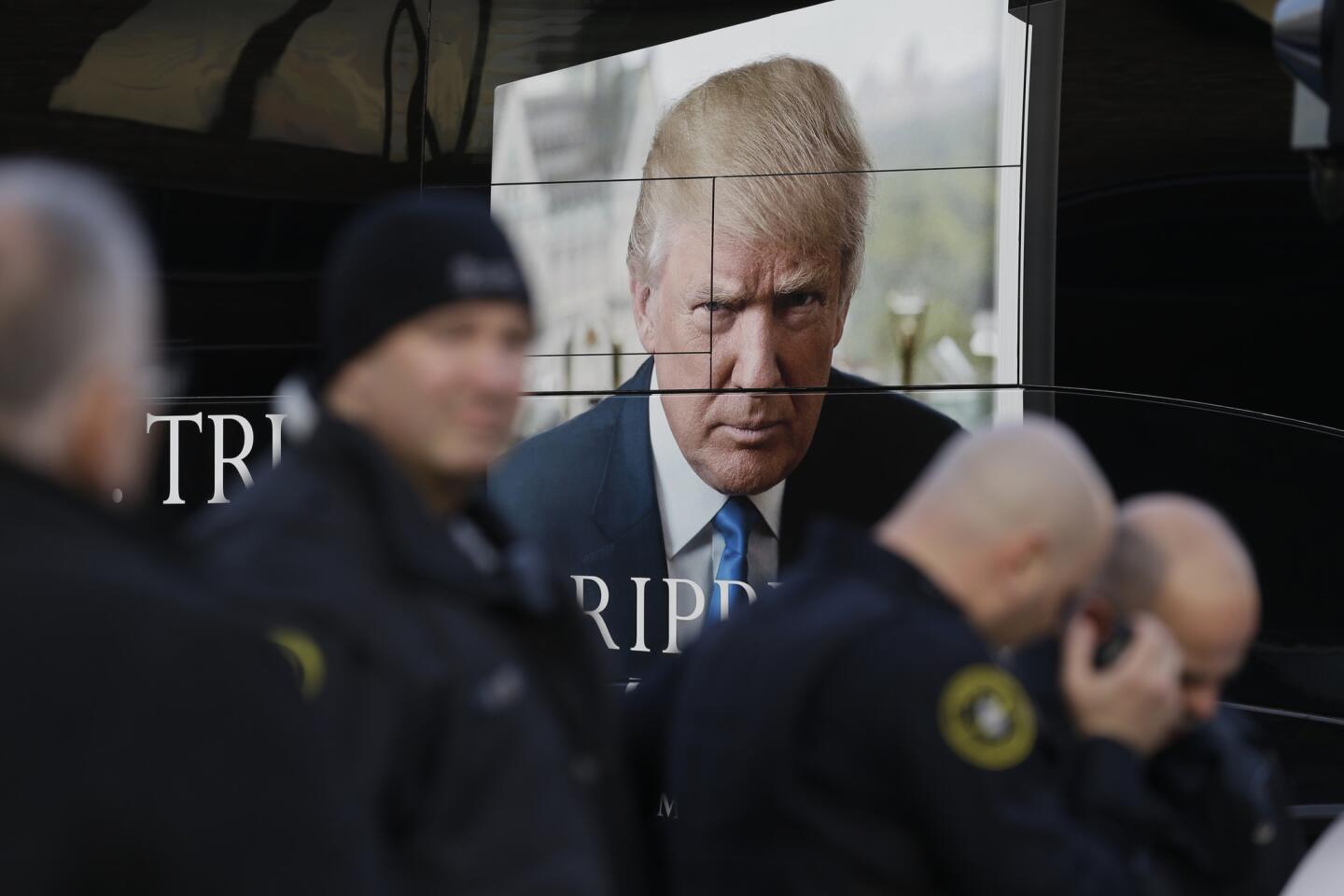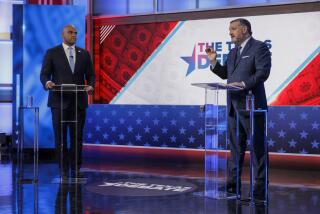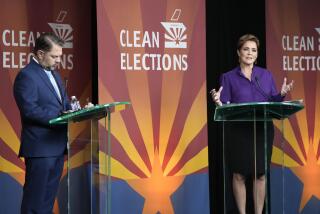Republicans feud over issues and ideology in latest debate
- Share via
Reporting from Milwaukee — Republican presidential candidates clashed over immigration, fiscal restraint and ideological purity Tuesday in a spirited debate that did little to settle a muddled race that for months has defied expectations.
Front-runner Donald Trump set off one of the evening’s sharpest exchanges in reiterating his vow to deport millions of immigrants in the U.S. illegally. “You’re going to have to send people back,” he said, sparking a vigorous pushback from Ohio Gov. John Kasich and former Florida Gov. Jeb Bush.
“Come on, folks, we all know you can’t pick them up and ship them back across the border,” Kasich said, making a case soon echoed by Bush. “It’s a silly argument. It’s not an adult argument.”
The back-and-forth highlighted the party’s longtime difficulty reconciling its conservative wing’s commitment to a hard line on immigration with efforts by the Republican establishment, largely unsuccessful in recent years, to build support among Latinos.
“They’re doing high-fives in the Clinton campaign right now when they hear this,” said Bush, who called for allowing immigrants in the U.S. illegally to pay fines, learn English and earn legal status. Deportation of an estimated 11 million people “would tear communities apart,” he said.
The immigration remarks were one of the most notable points of disagreement in a Fox Business Network-Wall Street Journal debate that in many ways was a contest over which candidate could adhere faithfully to the conservative tenets of small government but do so in a way that would help ensure Republicans win back the White House.
Facing specific, but less confrontational questions over their vision for the American economy, GOP contenders outlined a range of ideas that they said would represent a clean break from eight years of a Democratic administration, often while highlighting a common adversary: Hillary Rodham Clinton.
The leading candidates agreed that raising the minimum wage — a Democratic priority — would further imperil Americans struggling to make ends meet.
“We’re not going to be able to compete against the world,” Trump said, warning that wages as well as taxes were too high. “I hate to say it, but we have to leave it the way it is.”
Florida Sen. Marco Rubio said the main problem facing Americans is that the economy isn’t providing enough well-paying jobs.
“If I thought that raising the minimum wage was the best way to help people increase their pay I would be all for it. In the 21st century, it’s a disaster,” he said.
The debate came two weeks after a contentious meeting in Boulder, Colo., in which the pointed questions of CNBC panelists made them a target of conservatives’ scorn. This time, questions in both the main debate and an initial forum featuring four White House hopefuls lagging in the polls largely centered on the candidates’ plans on taxes, regulation and government programs.
One exception came early as retired neurosurgeon Ben Carson, having joined Trump as a surprising pacesetter in the GOP race, was questioned about his biographical anecdotes, including his claims of violence against family members during his youth and whether he was offered a scholarship to attend West Point.
Carson, who has blamed the media for “special scrutiny” of his campaign at a time when he has momentum, said he had “no problem with being vetted.” Then he quickly pivoted to criticize Clinton, the former secretary of State, over public statements after the 2012 attack on a U.S. diplomatic compound in Benghazi, Libya, that contradicted private conversations.
“Where I came from they call that a lie,” he said, while asserting he was “an honest person.”
Carly Fiorina also sharply rebuked the leading Democrat, and what she called the “Clinton way — say whatever you have to, lie as long as you can get away with it.”
“We must beat Hillary Clinton,” she said. “Carly Fiorina can beat Hillary Clinton.”
Economic indicators show that the U.S. has largely recovered from the depths of the Great Recession. The October jobs report showed the U.S. added 271,000 jobs while the unemployment rate dipped to 5%. Republicans argued Tuesday night that the recovery could have been better still, and more broadly shared, if not for excessive government regulations and Obama administration policies such as the Affordable Care Act.
“Hillary Clinton has said that Barack Obama’s policies get an ‘A.’ Really?” asked Bush. “One in 10 people aren’t working or have given up all together. That’s not an ‘A.’”
In the most tangible sign of the kinetic GOP race, the main stage for Tuesday’s debate shrank for the first time, from 10 candidates to eight, after new national polls exiled two mainstays — New Jersey Gov. Chris Christie and former Arkansas Gov. Mike Huckabee — to the second-tier debate. They squared off with former Sen. Rick Santorum of Pennsylvania and Louisiana Gov. Bobby Jindal.
Christie used the setting to repeatedly go after Clinton and present himself as the strongest Republican to take on the potential Democratic nominee. At one point he warned that Clinton was “coming for your wallet.”
“You need someone who’s going to stand up on that stage and prosecute the case against her and prosecute it strong,” he said. “That’s what I’ll do.”
Differences amongst Republicans were also apparent on foreign policy. In the main debate, Kentucky Sen. Rand Paul questioned Rubio’s conservative orthodoxy, saying the cost of the tax credits and his proposed $1 trillion in new military spending were unaffordable.
“You cannot be a conservative if you’re going to keep promoting new programs that you’re not going to pay for,” Paul said.
Rubio said it was crucial to build up the military when “there are radical jihadists in the Middle East beheading people and crucifying Christians.”
“I know the world is a safer and better place when America is the strongest military power in the world,” he said to loud applause.
Paul retorted: “I want a strong national defense, but I don’t want us to be bankrupt.”
Texas Sen. Ted Cruz jumped in, saying there was a “middle ground.”
“We have to defend this nation,” Cruz said. “You think defending this nation is expensive? Try not defending it. That’s a lot more expensive.”
Republicans will debate again in the midst of the holiday season on Dec. 15.
ALSO:
Trump calls for Starbucks boycott at raucous Springfield rally
Why ‘Late Night’s’ Seth Meyers has ‘nothing but sympathy’ for debate moderators
More to Read
Sign up for Essential California
The most important California stories and recommendations in your inbox every morning.
You may occasionally receive promotional content from the Los Angeles Times.
